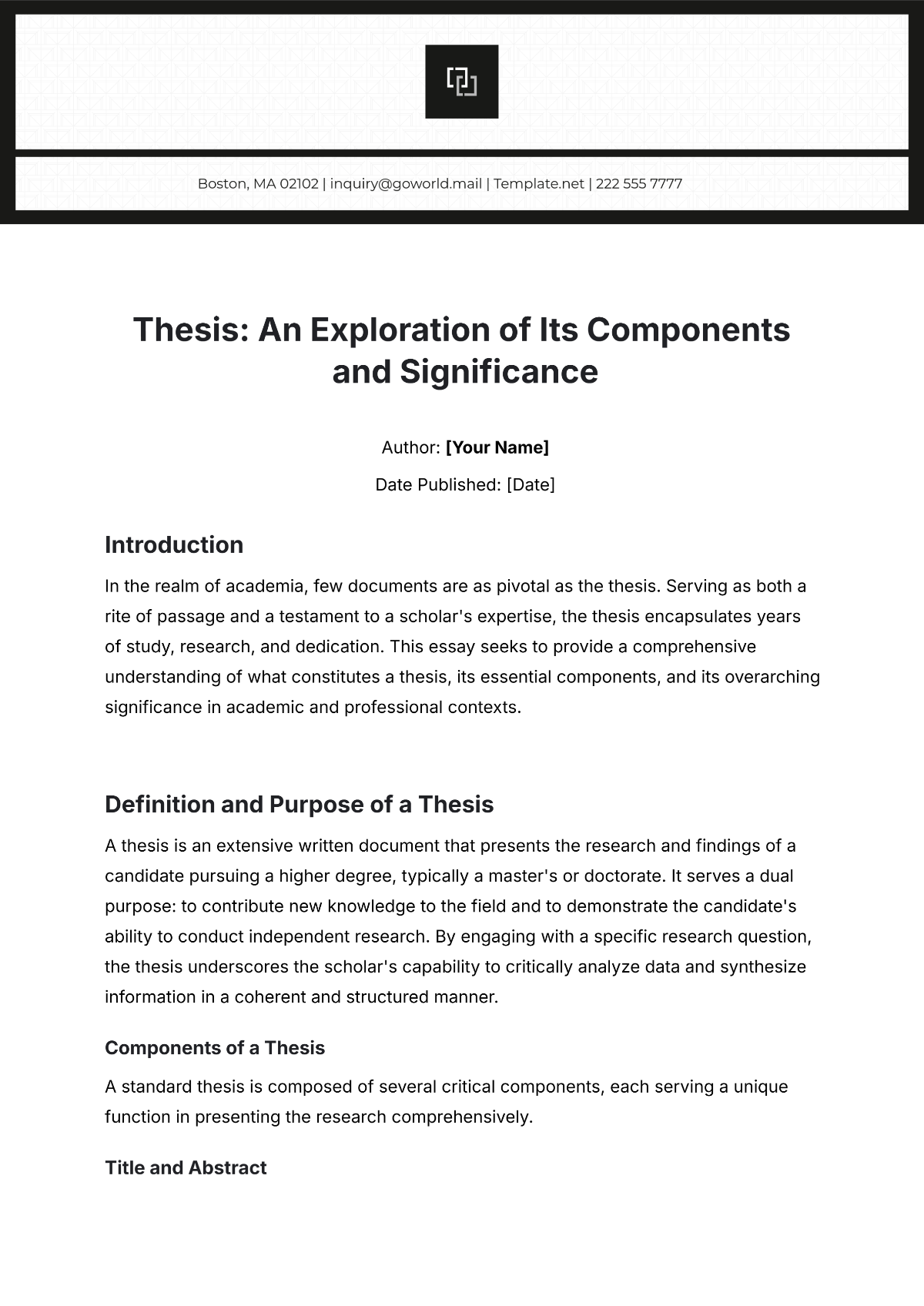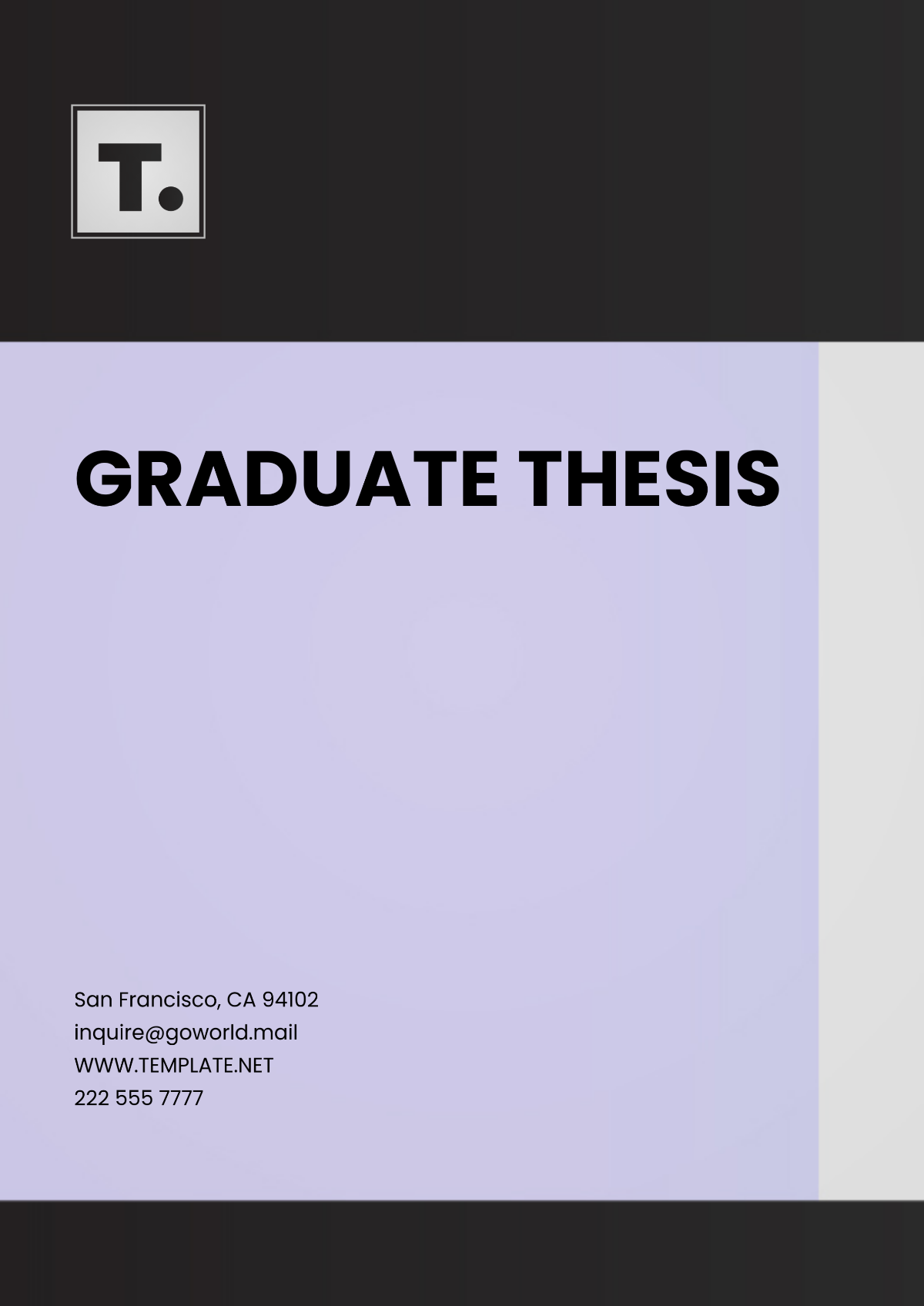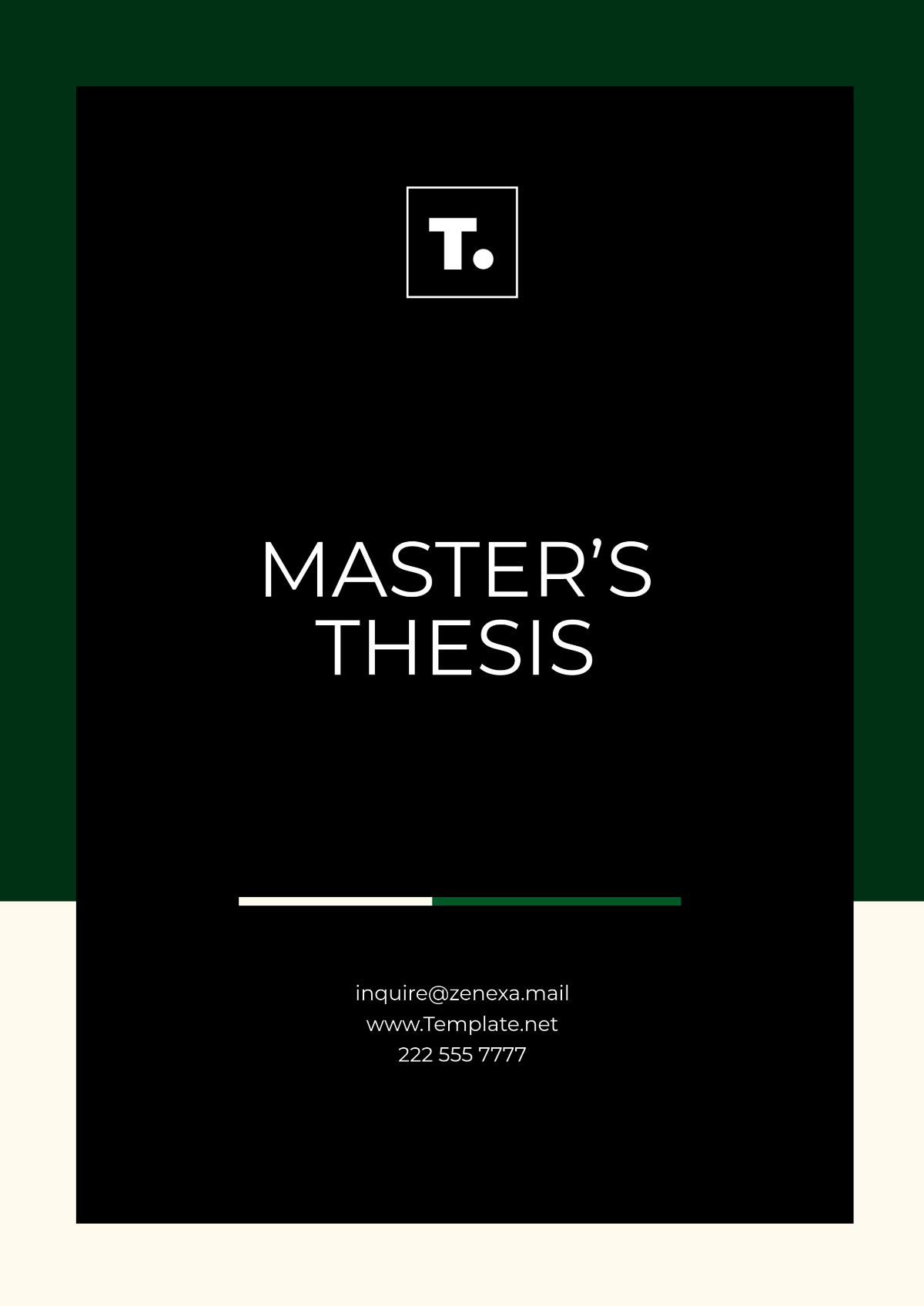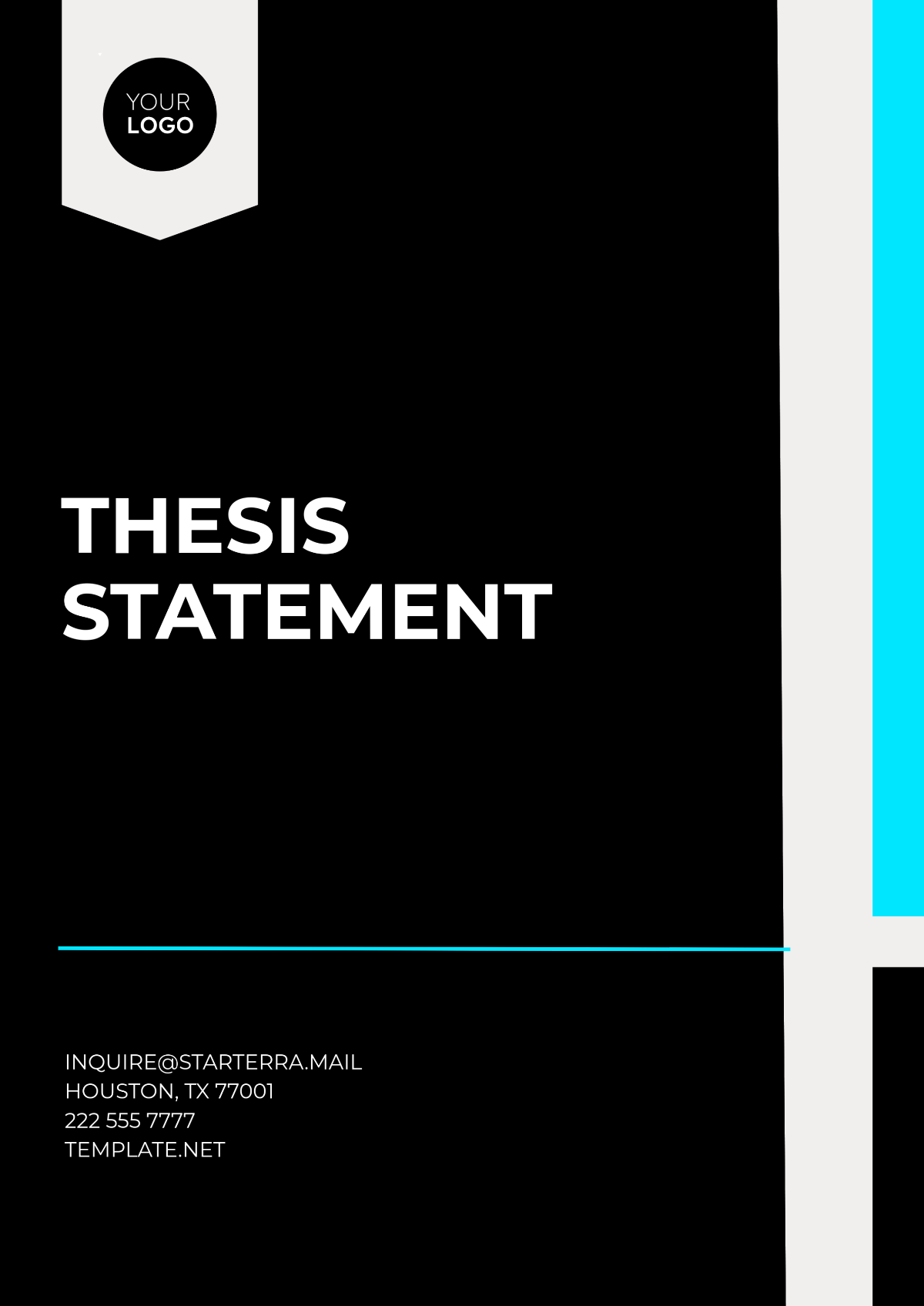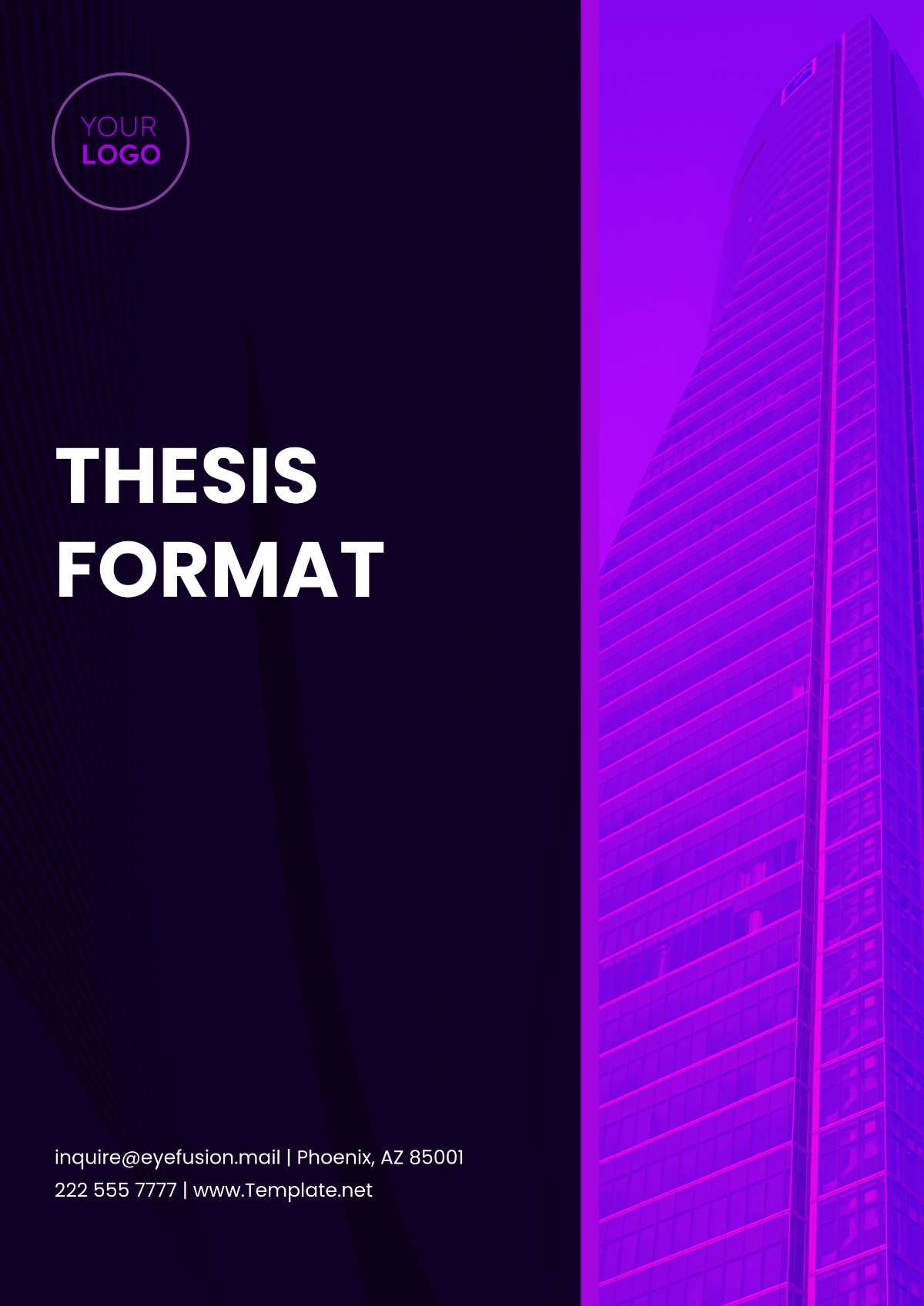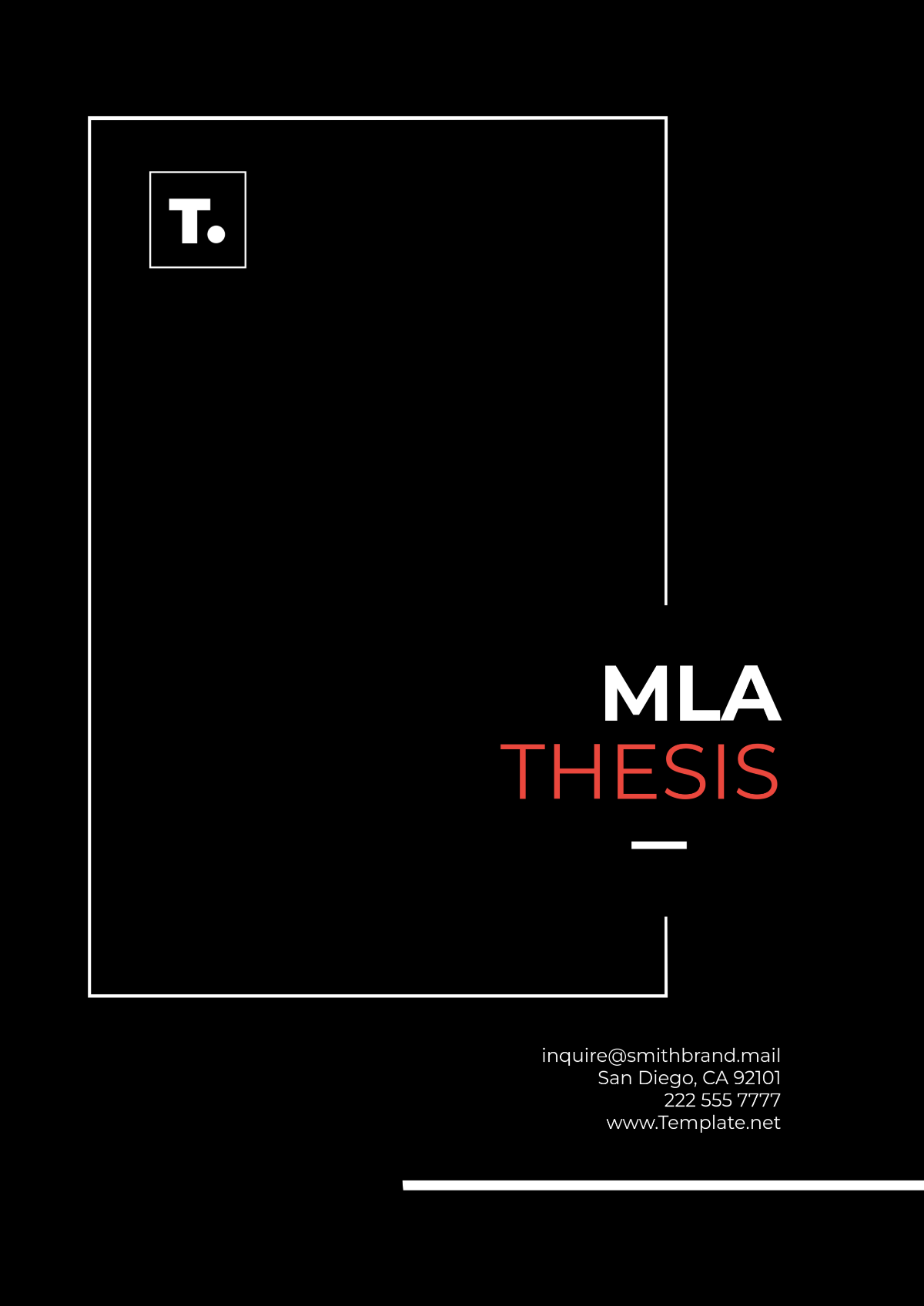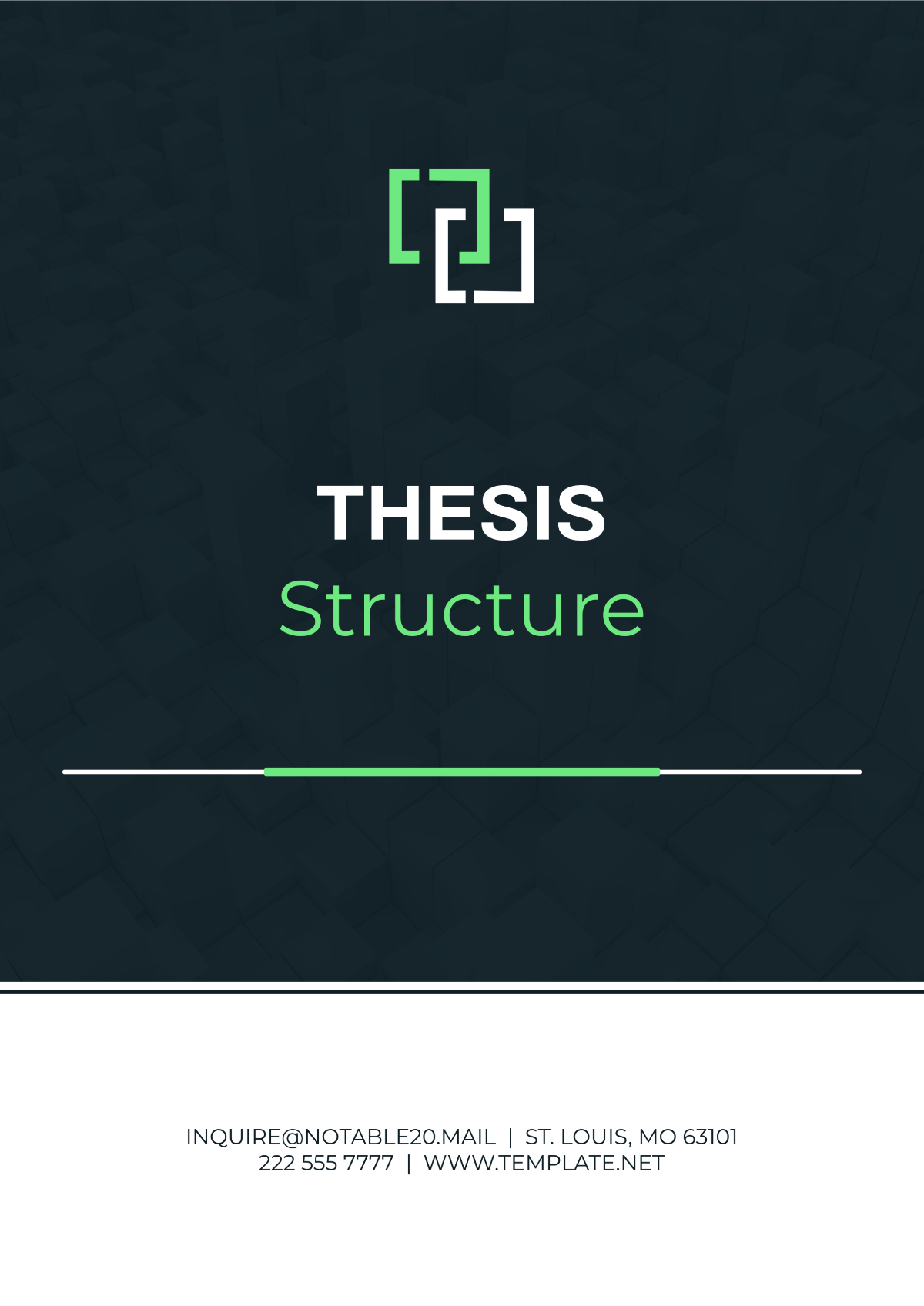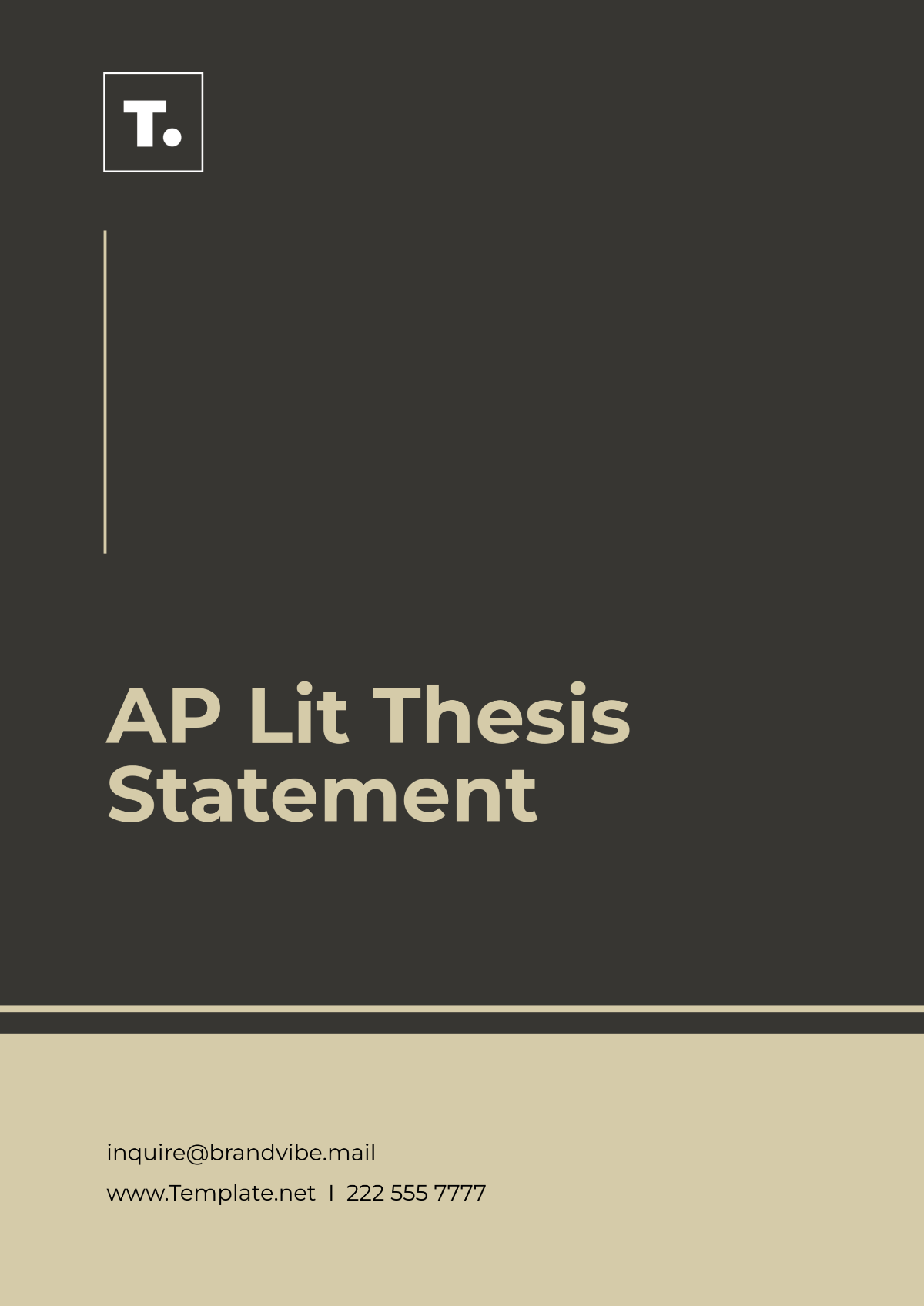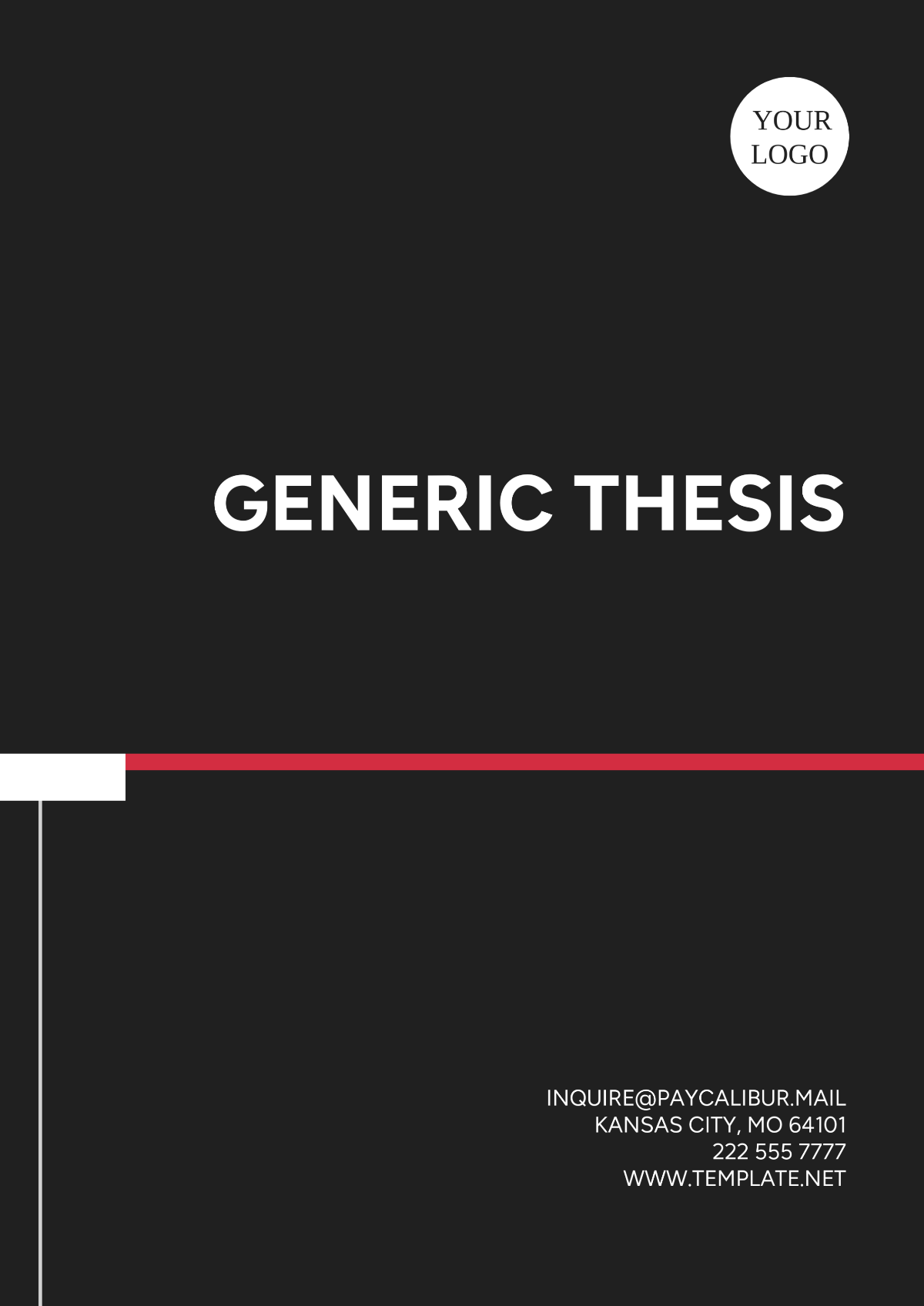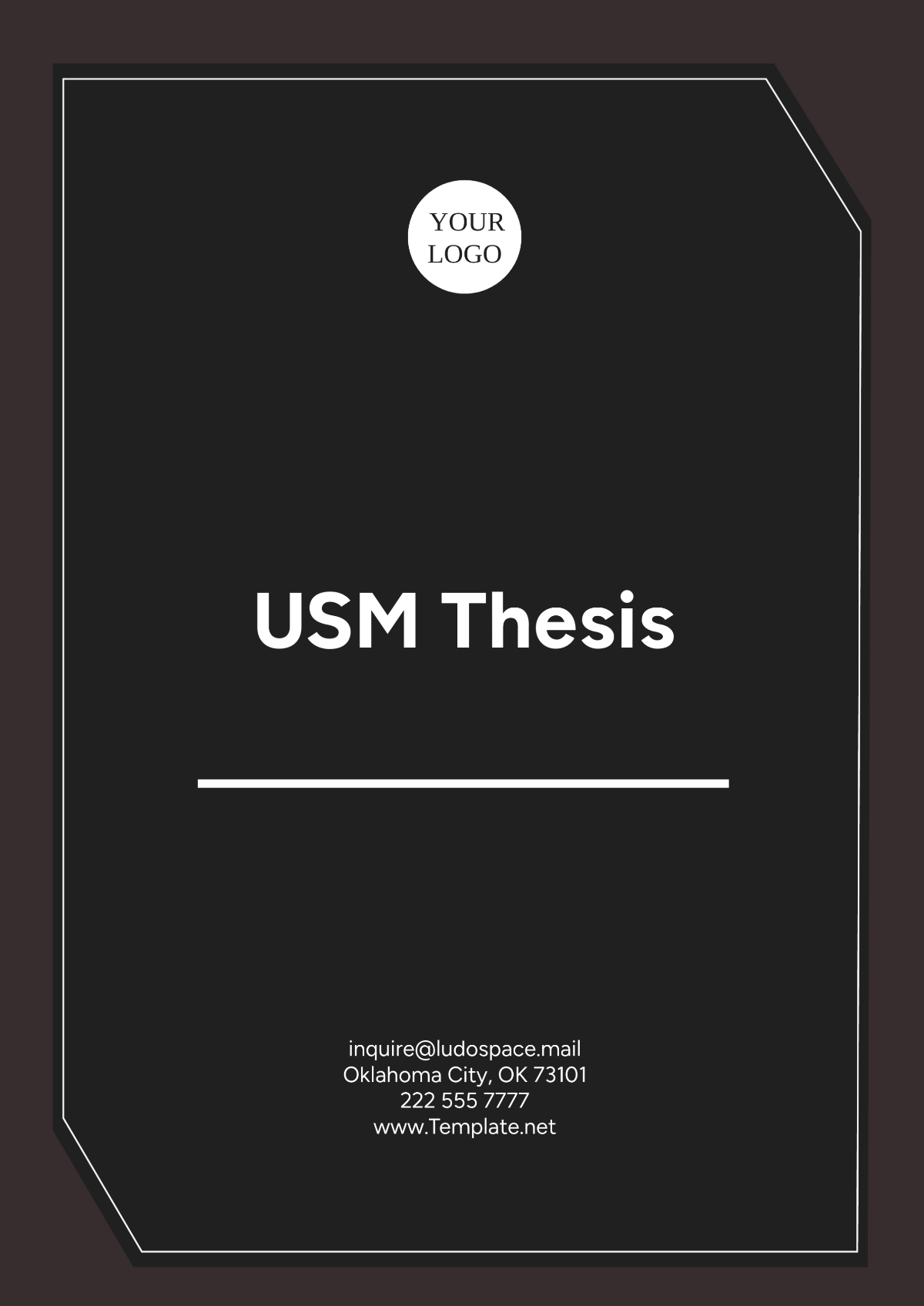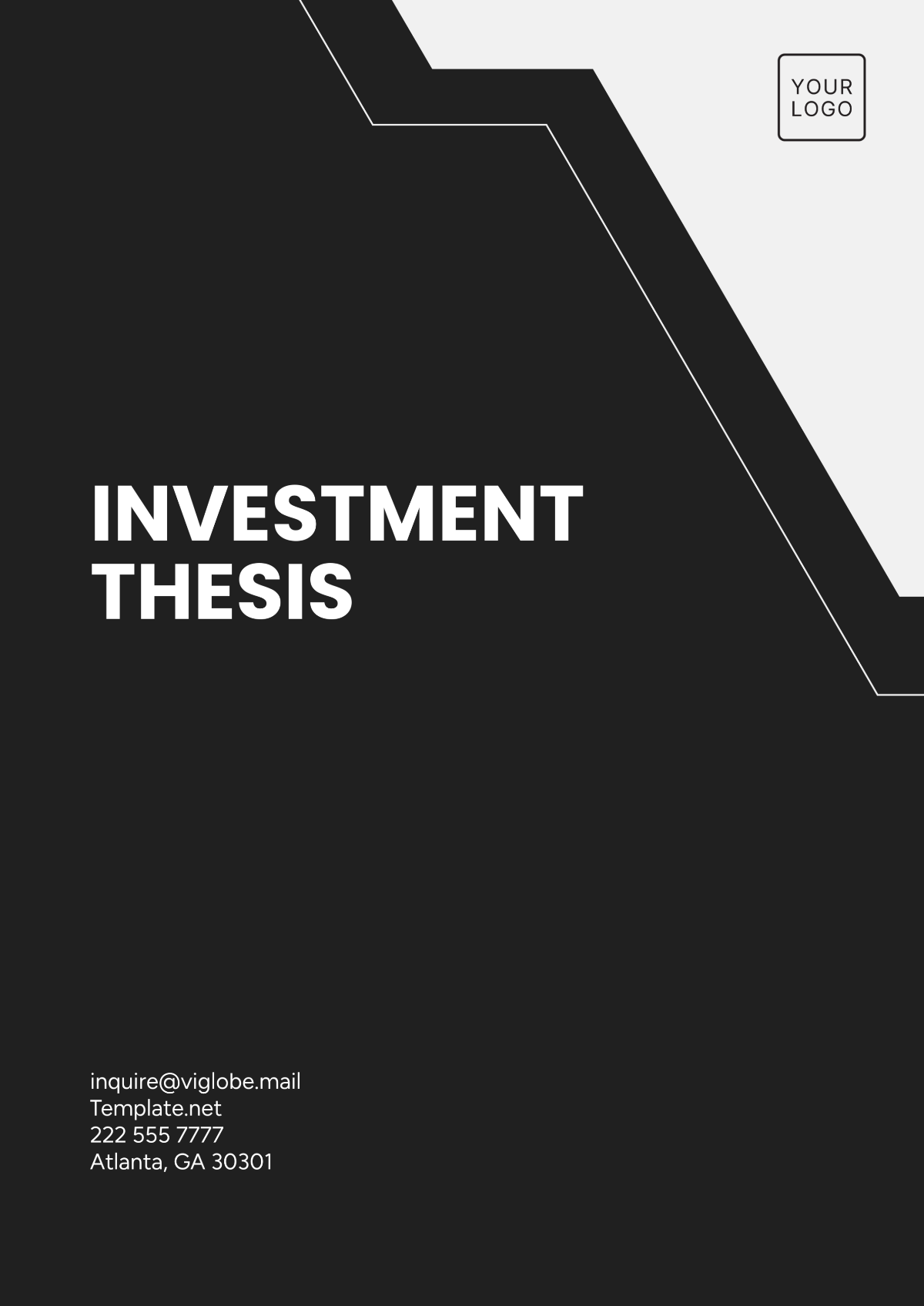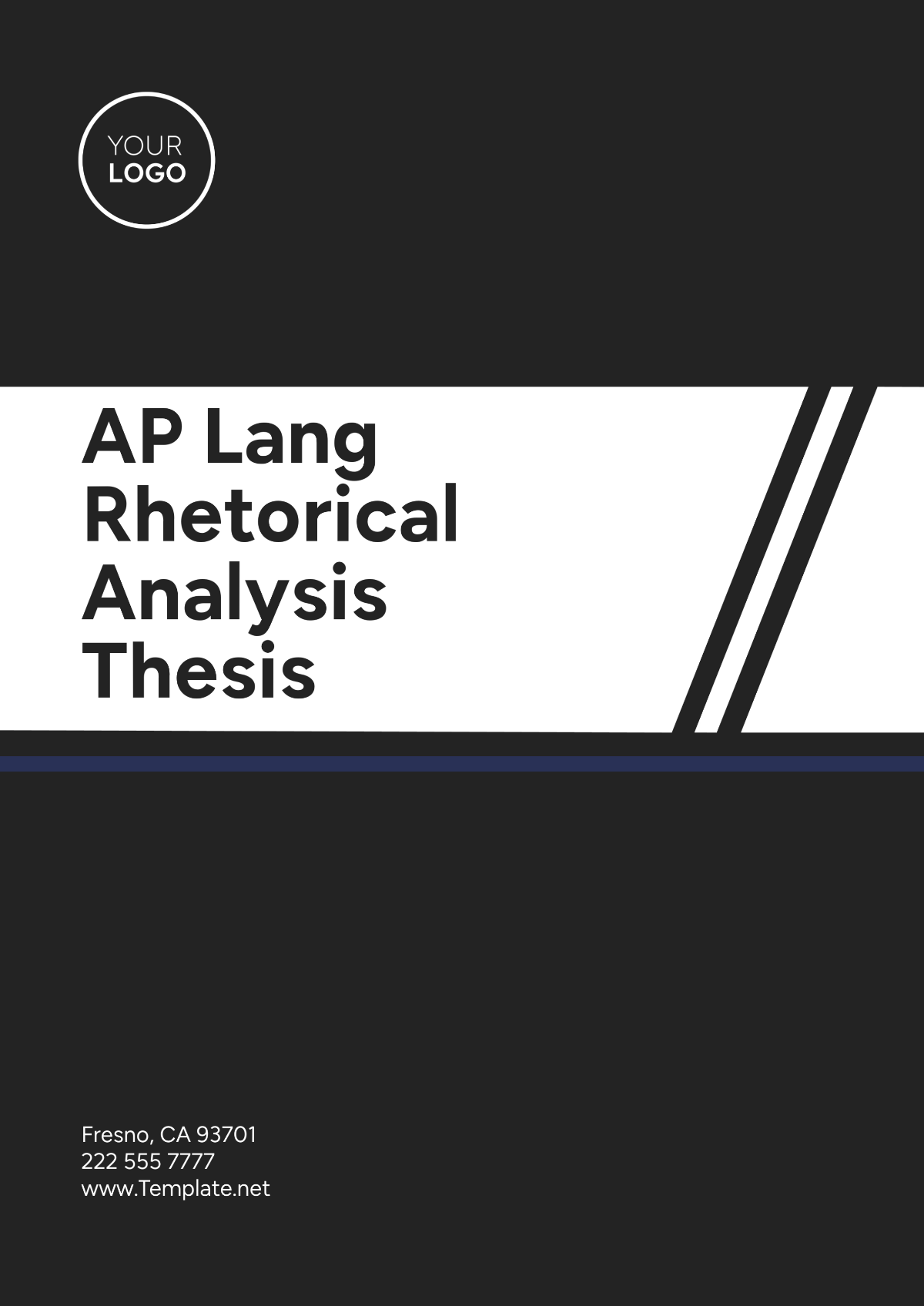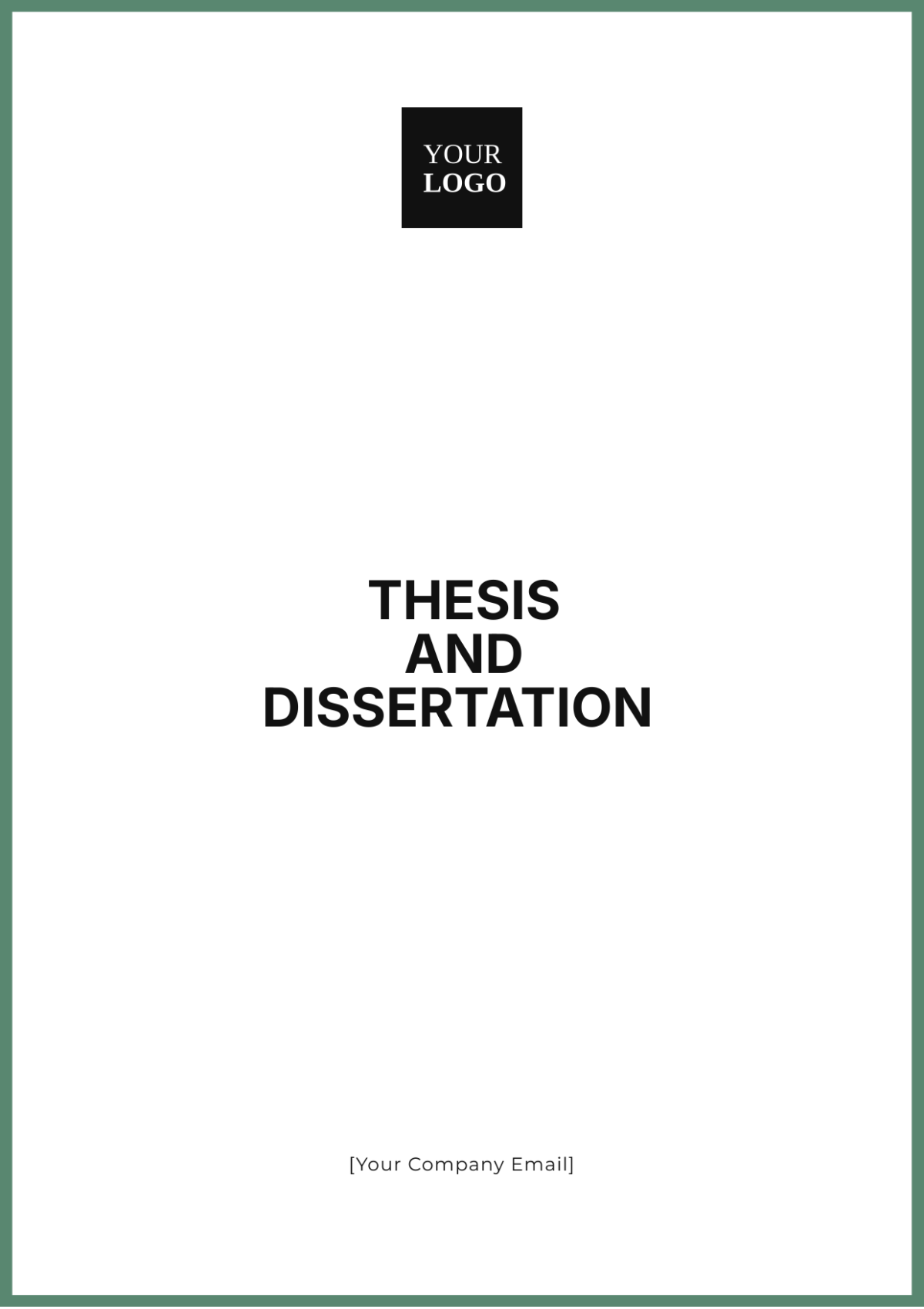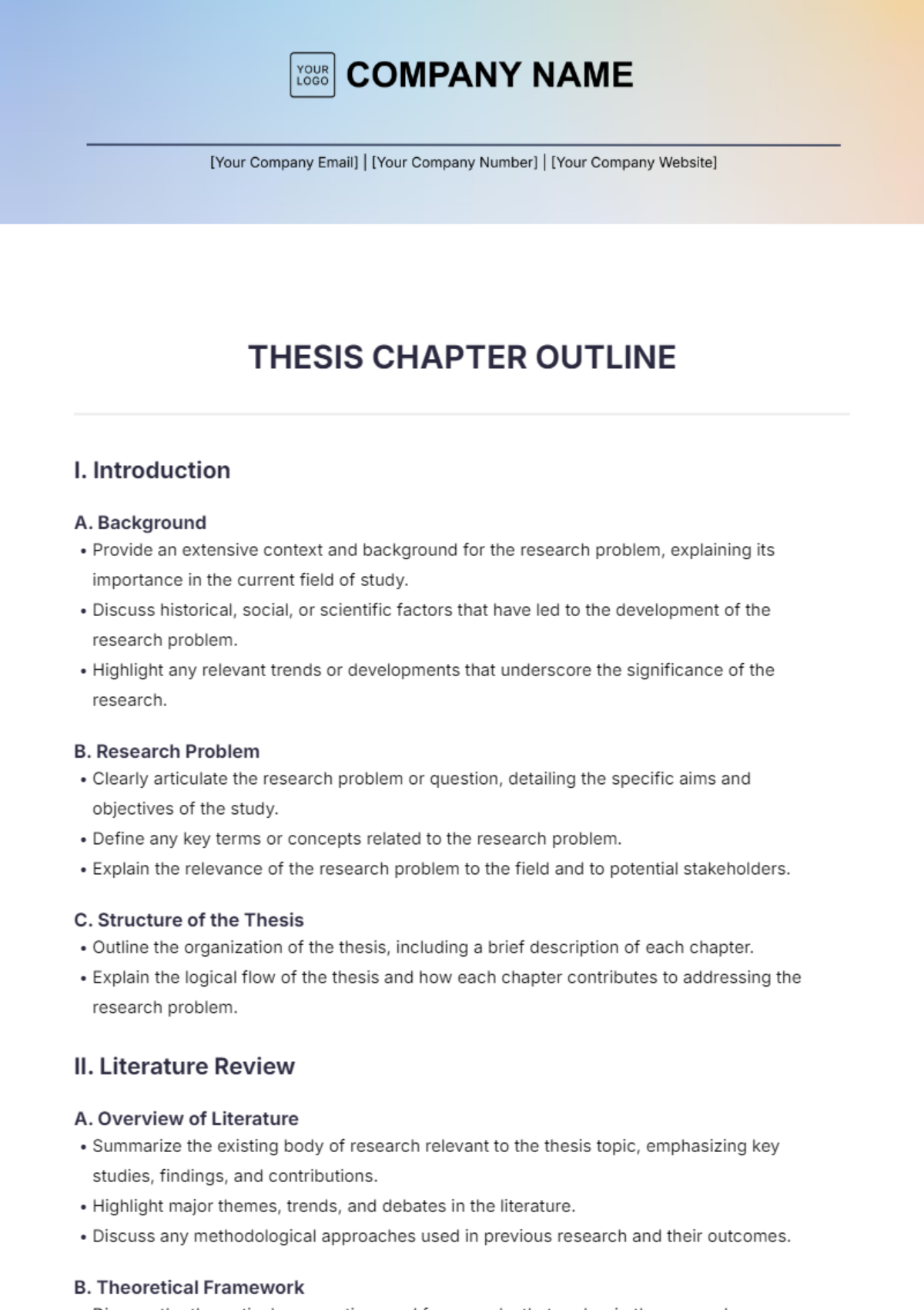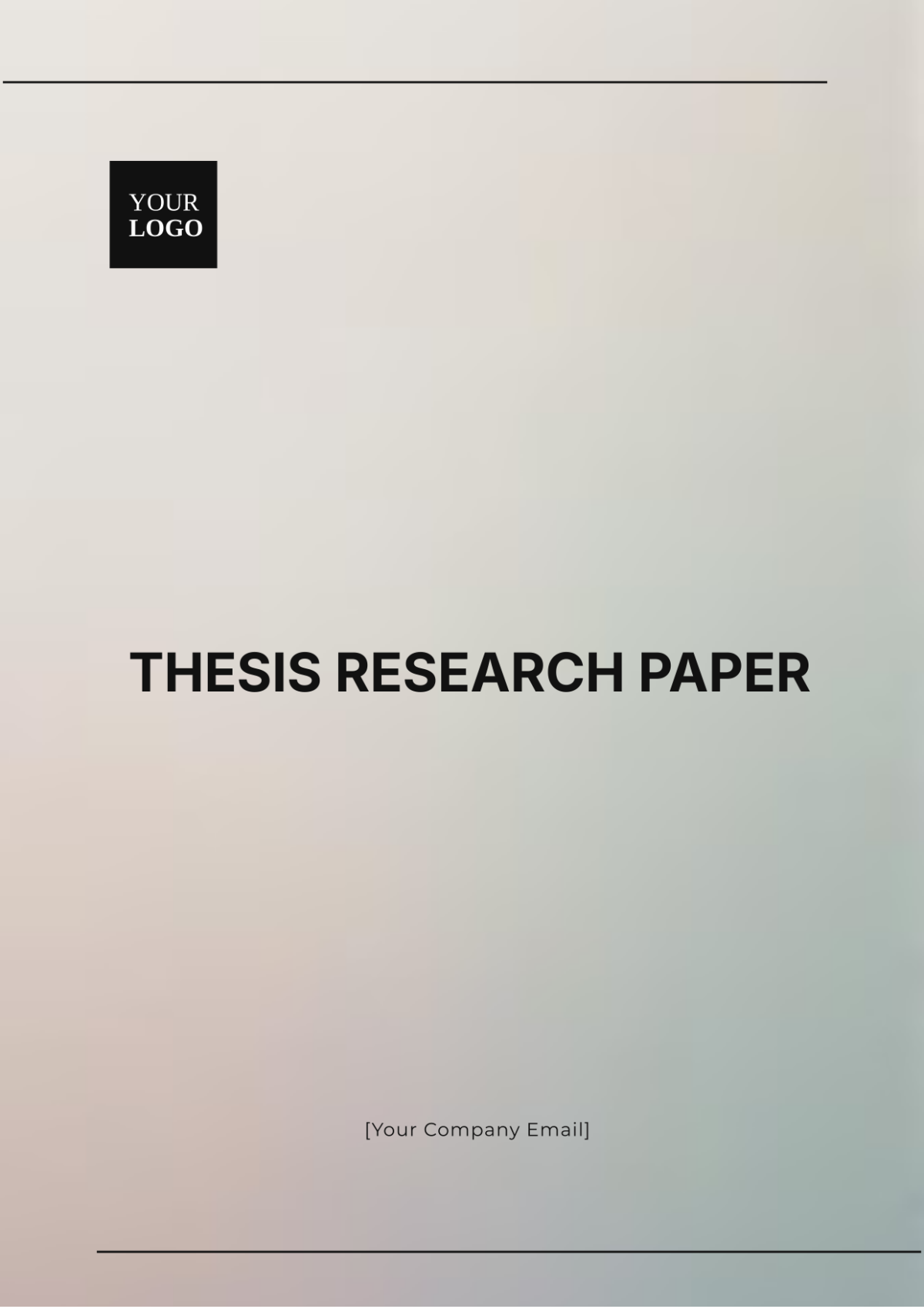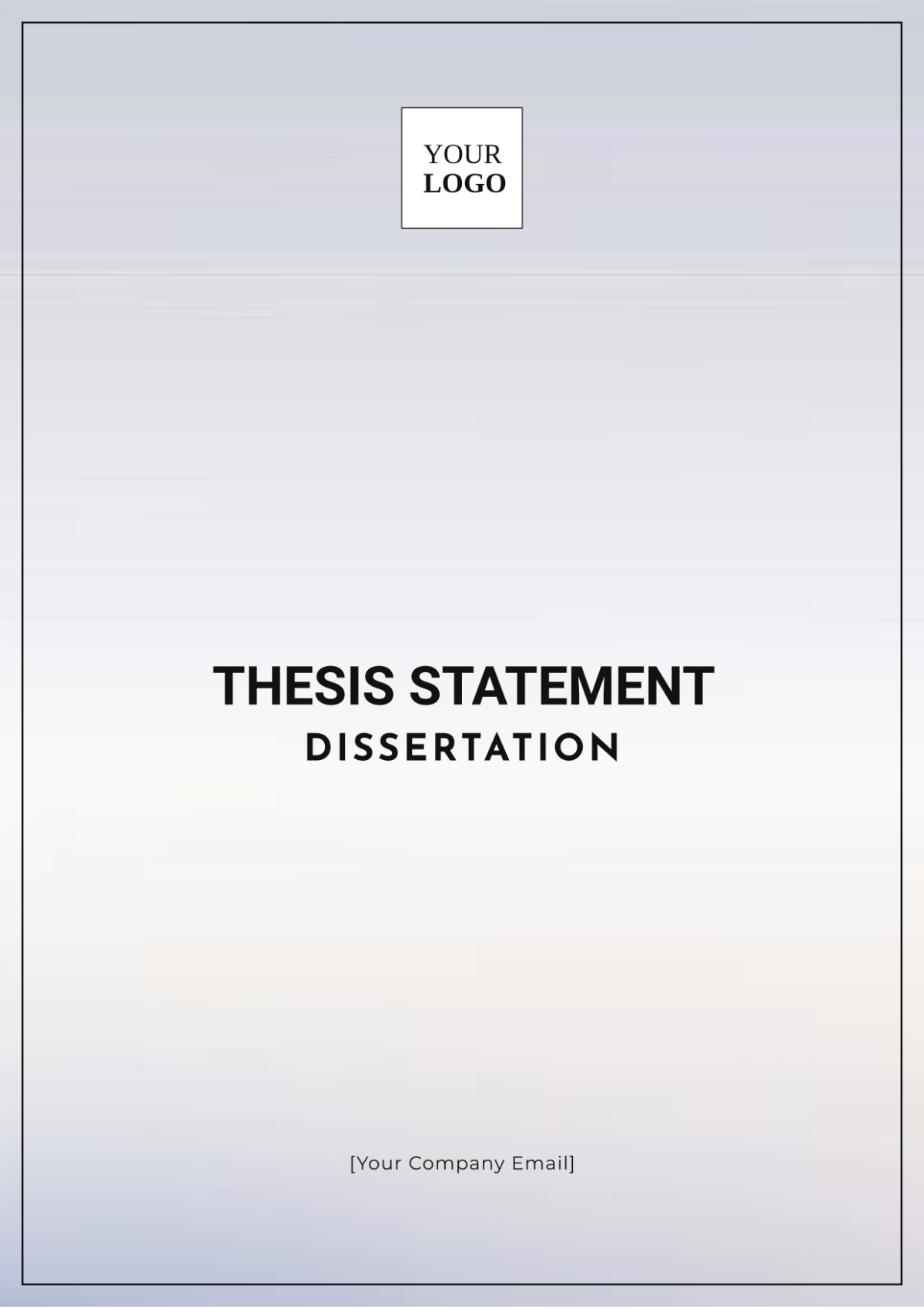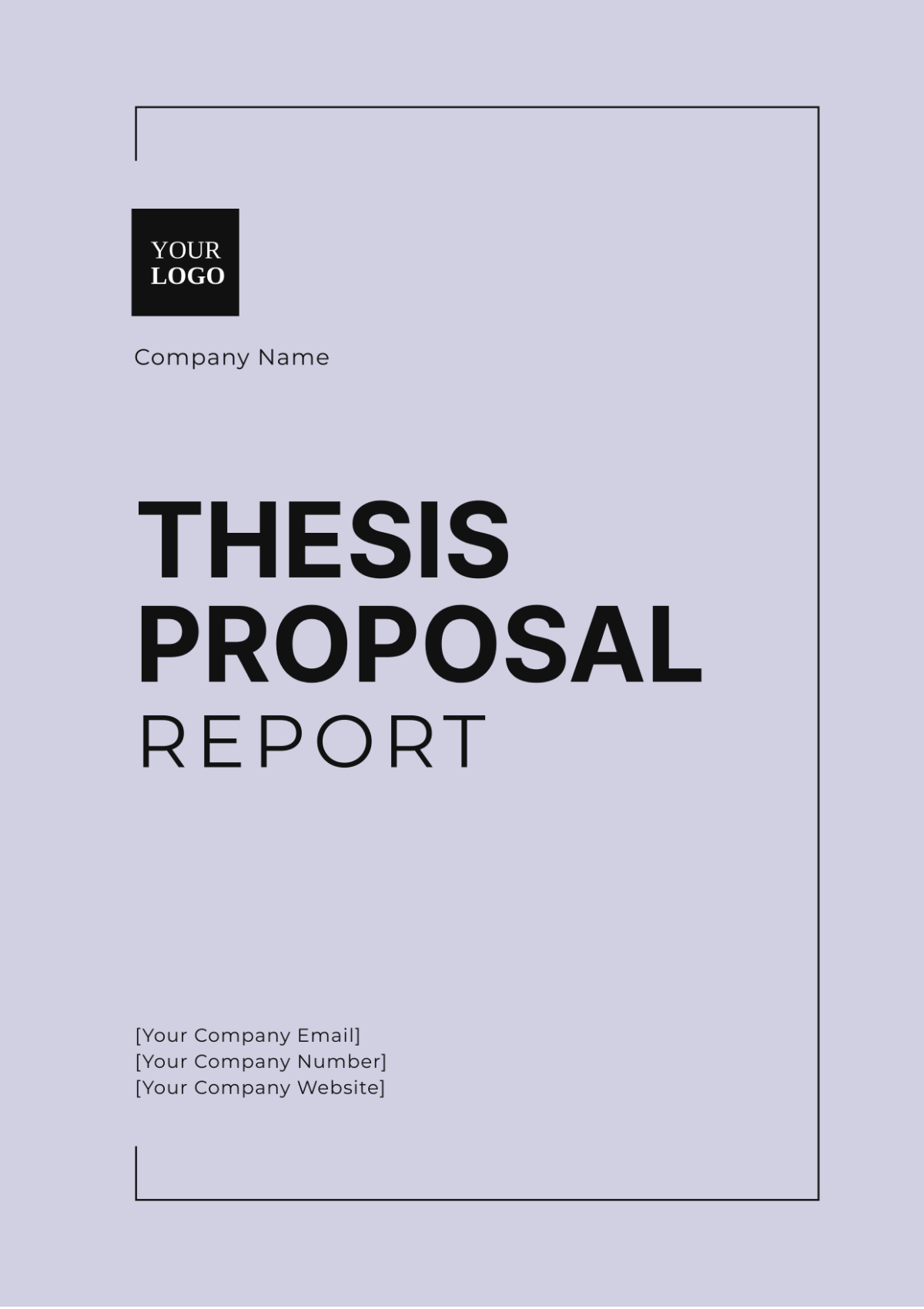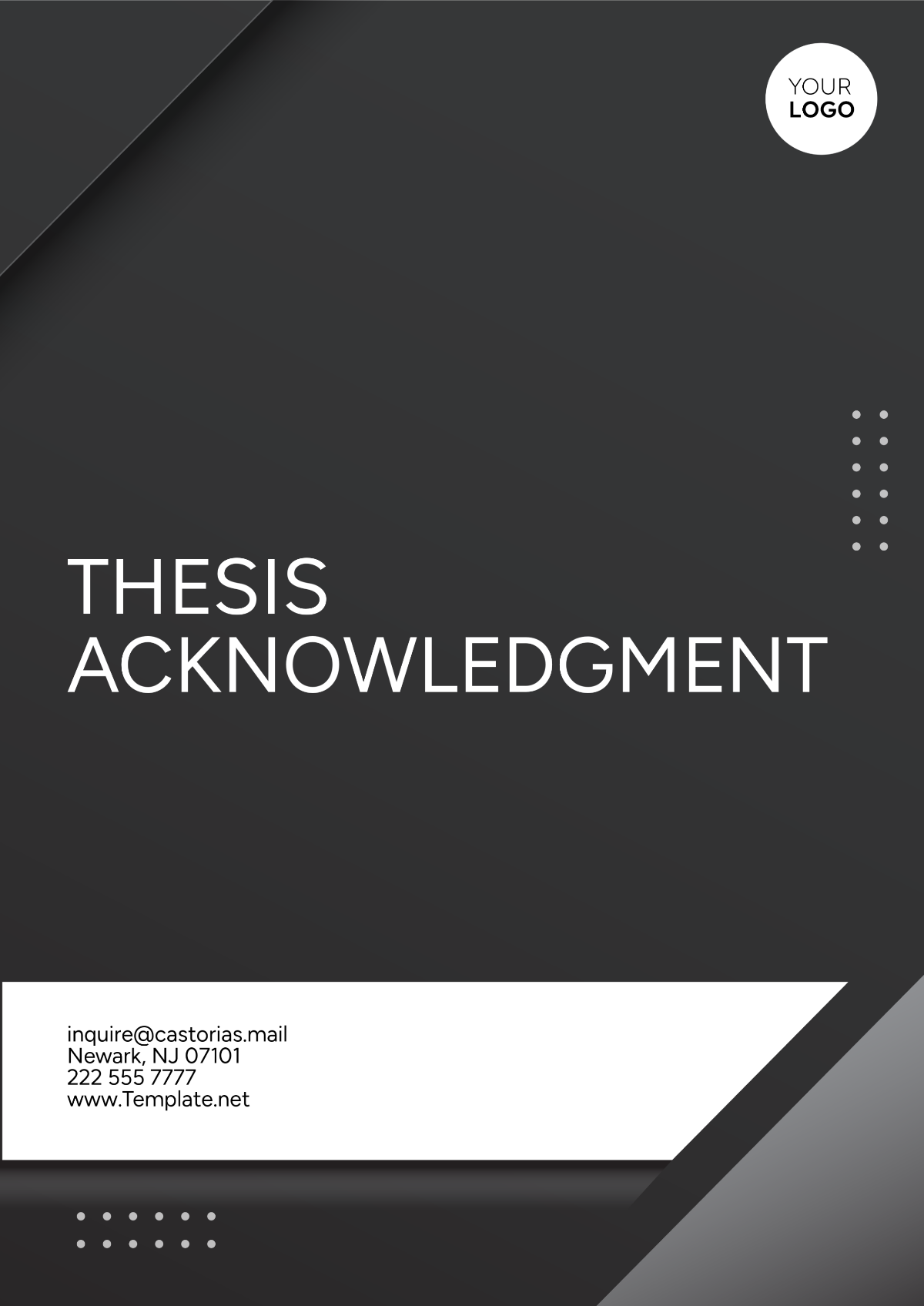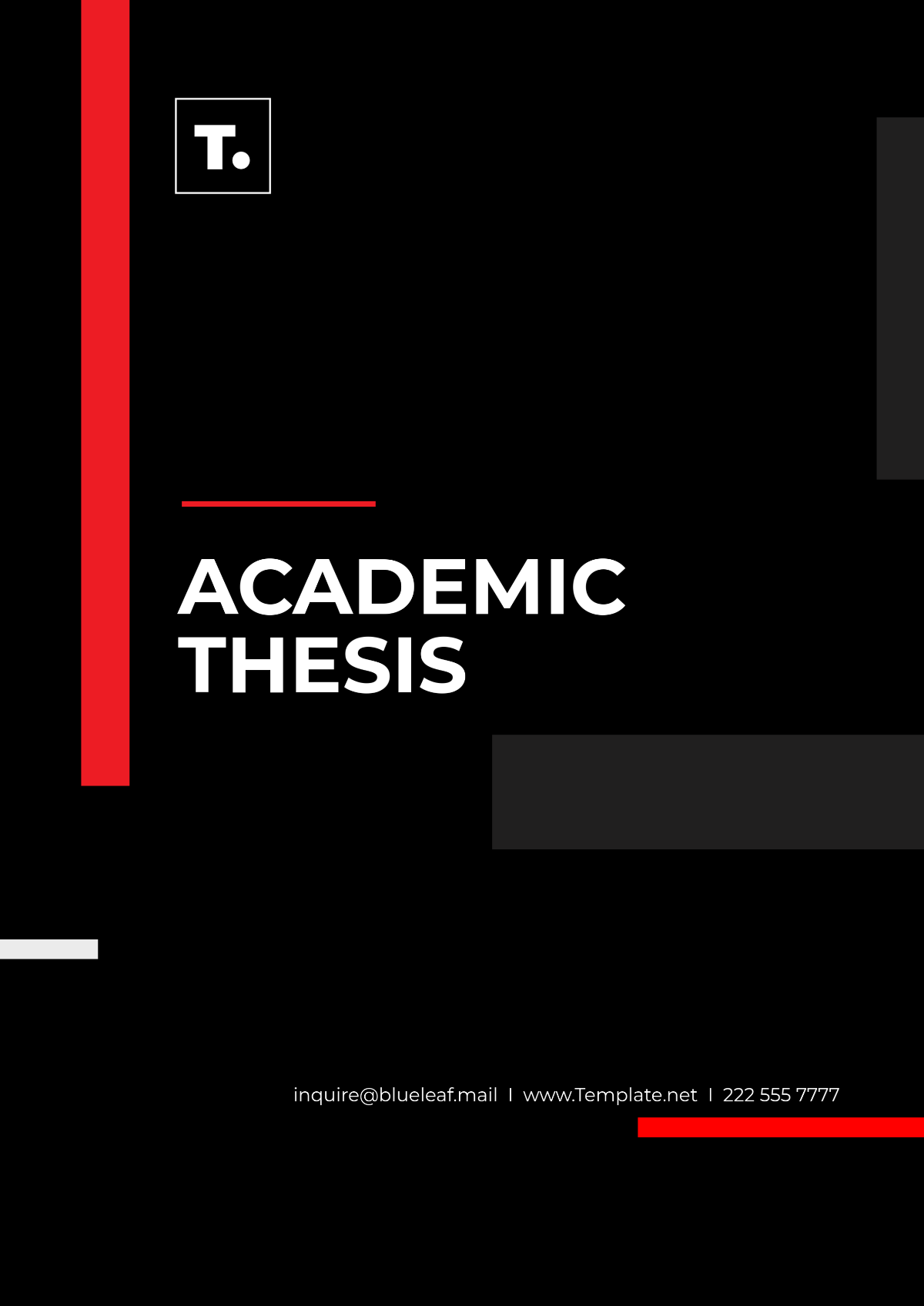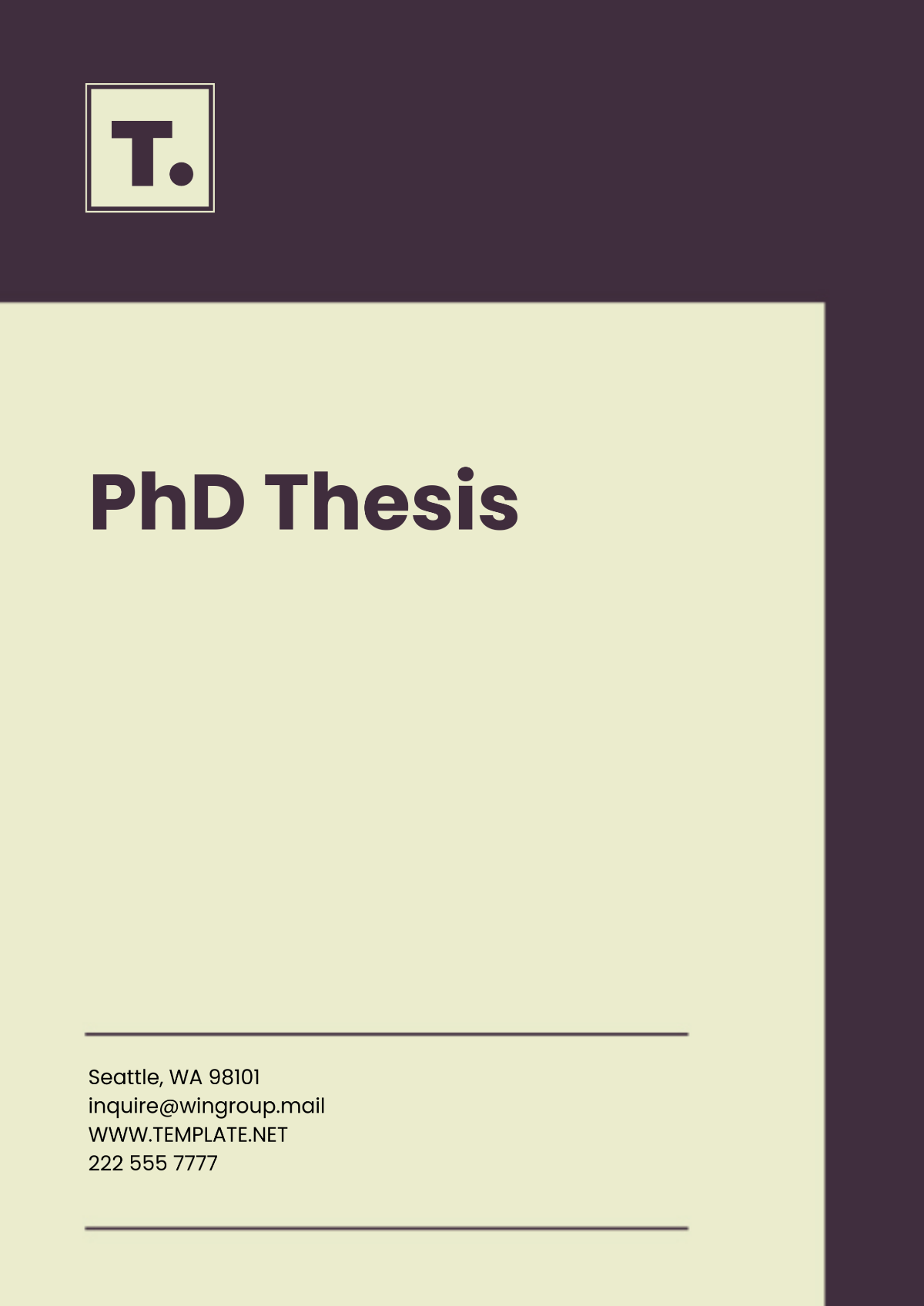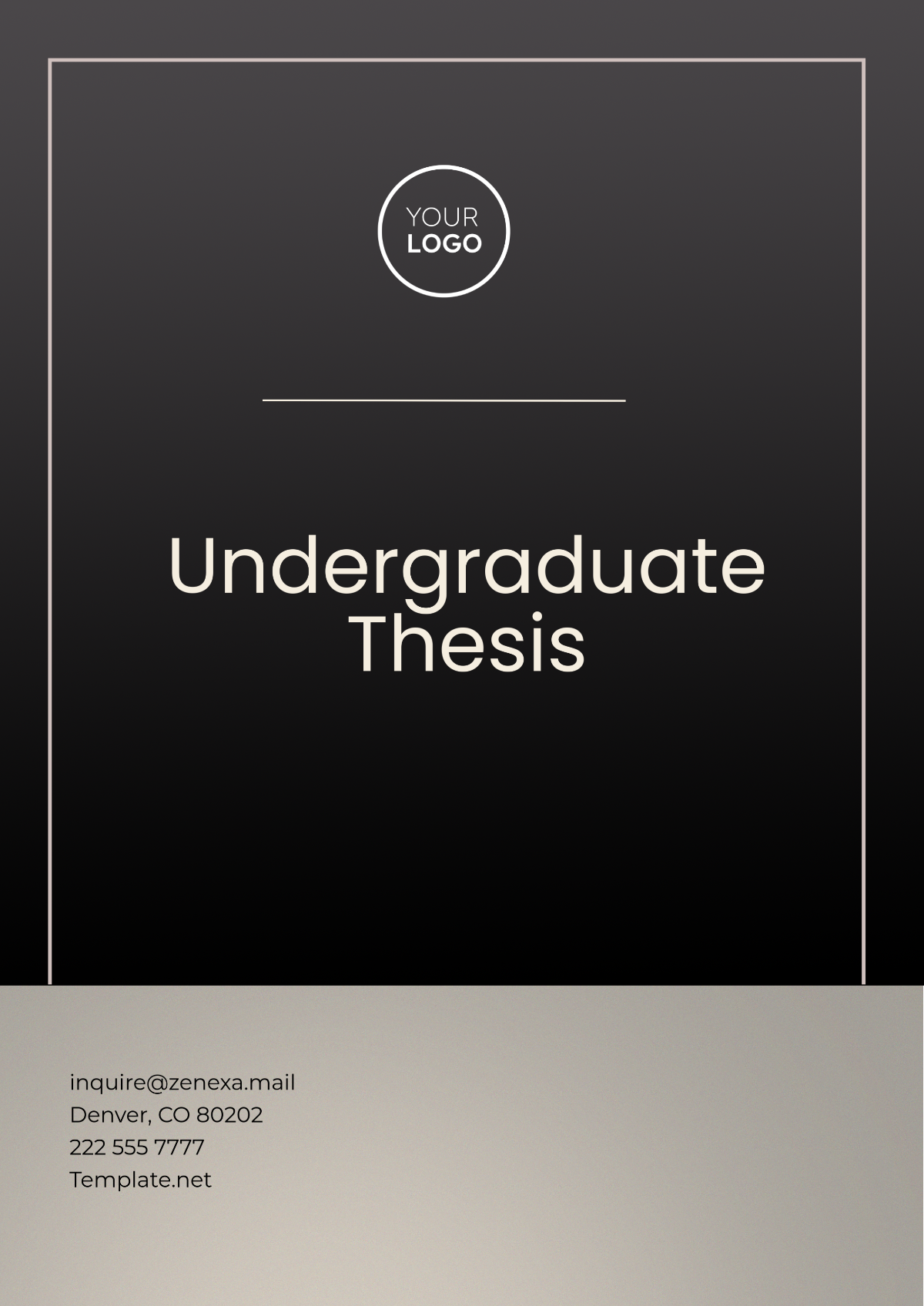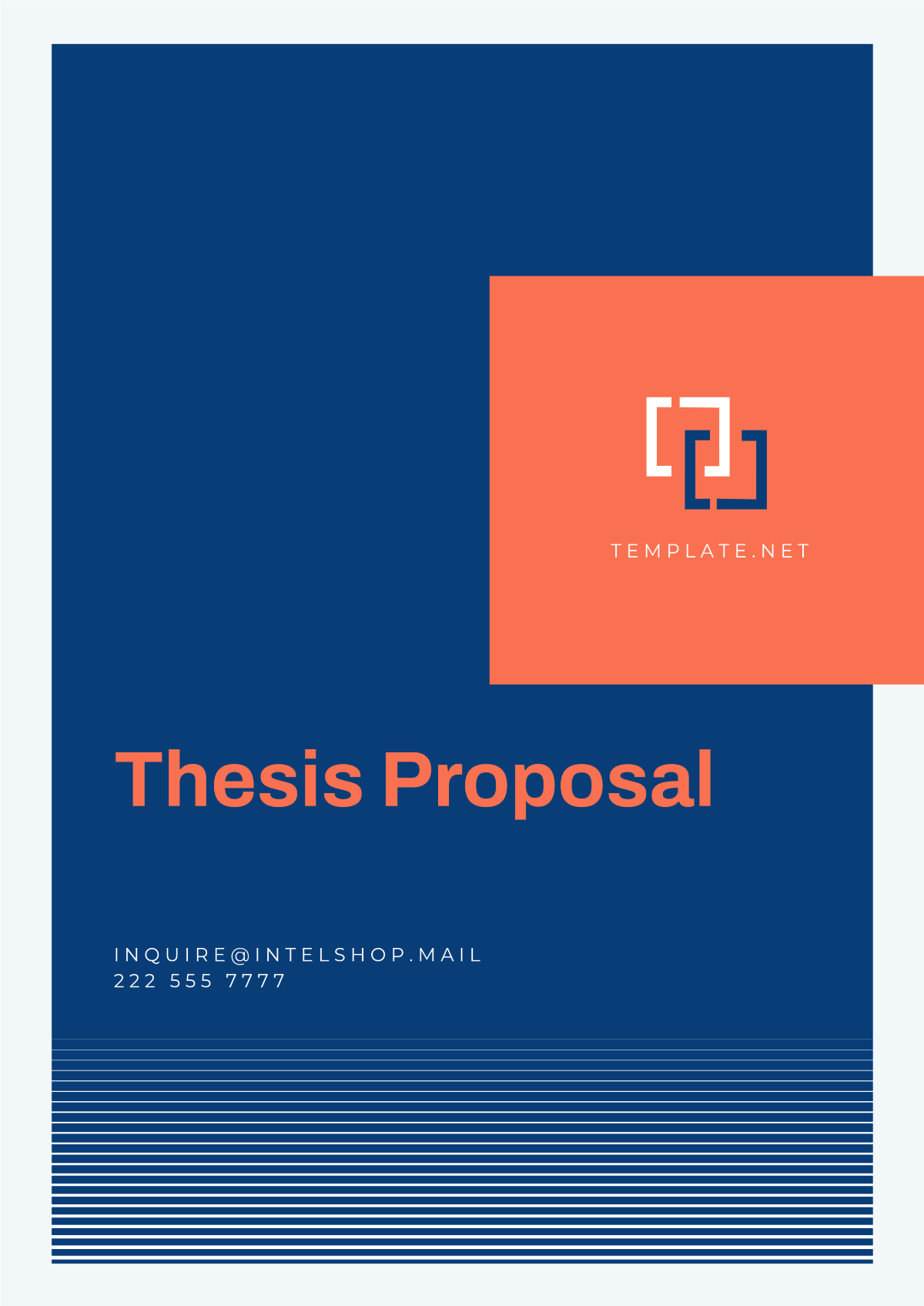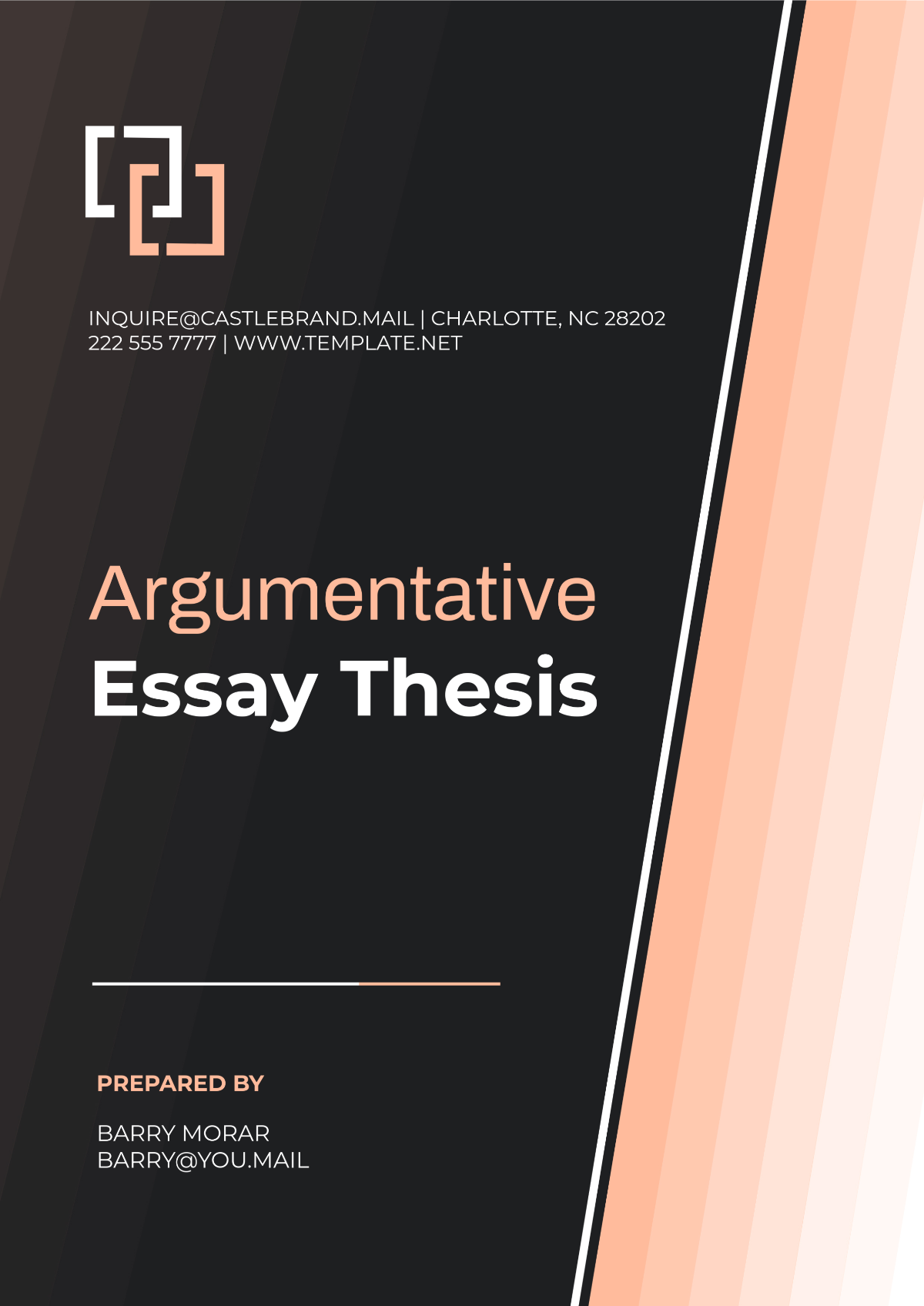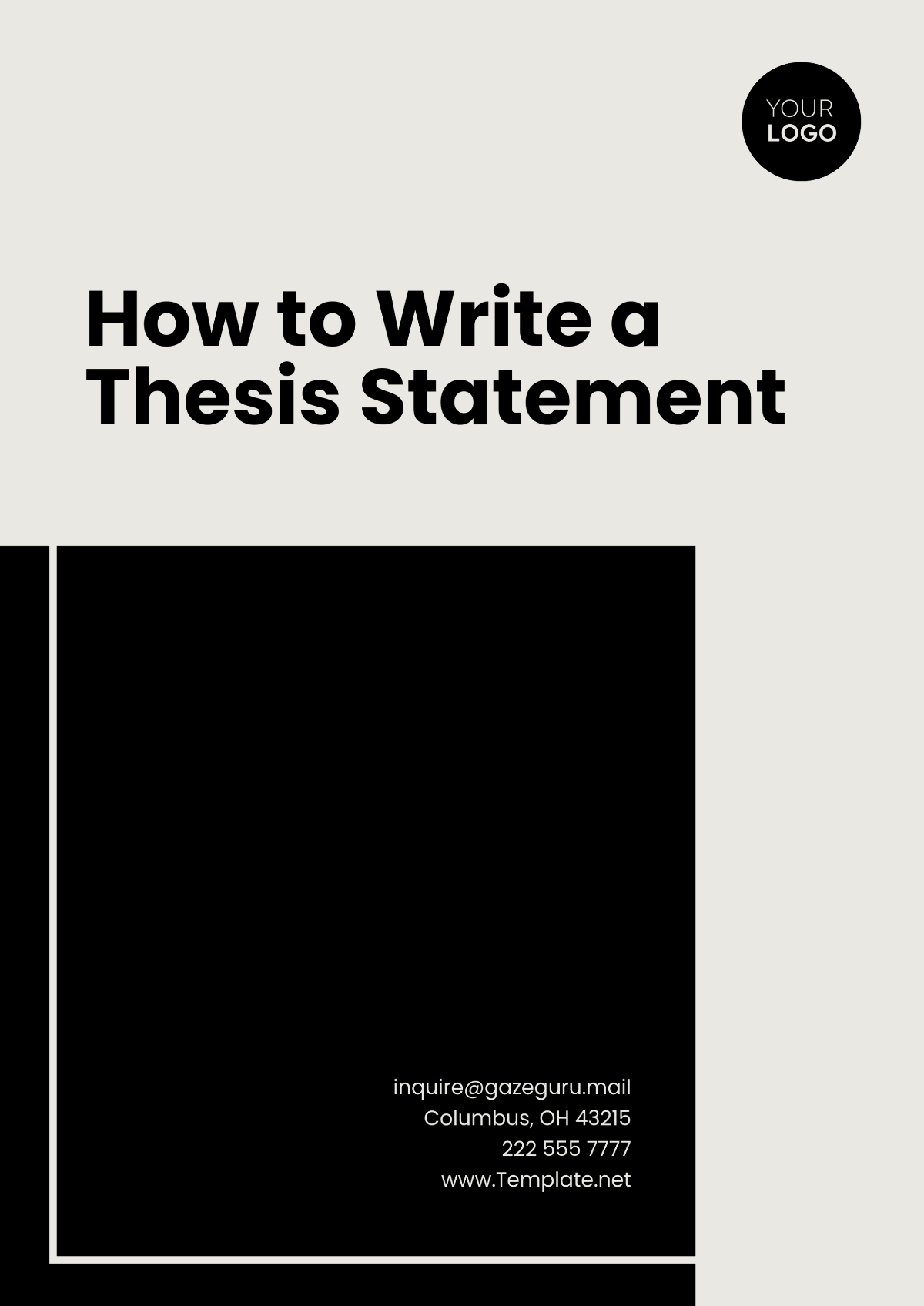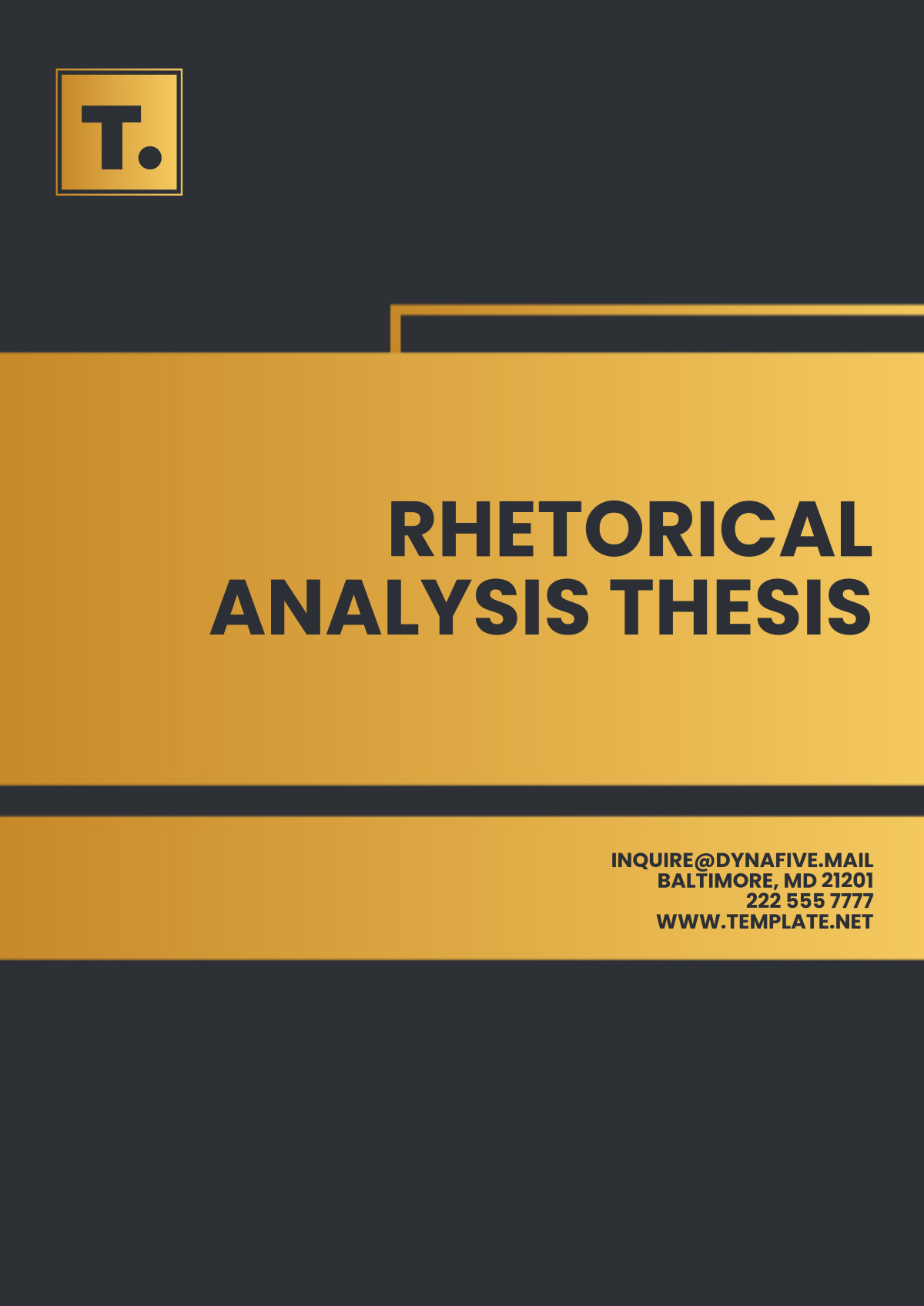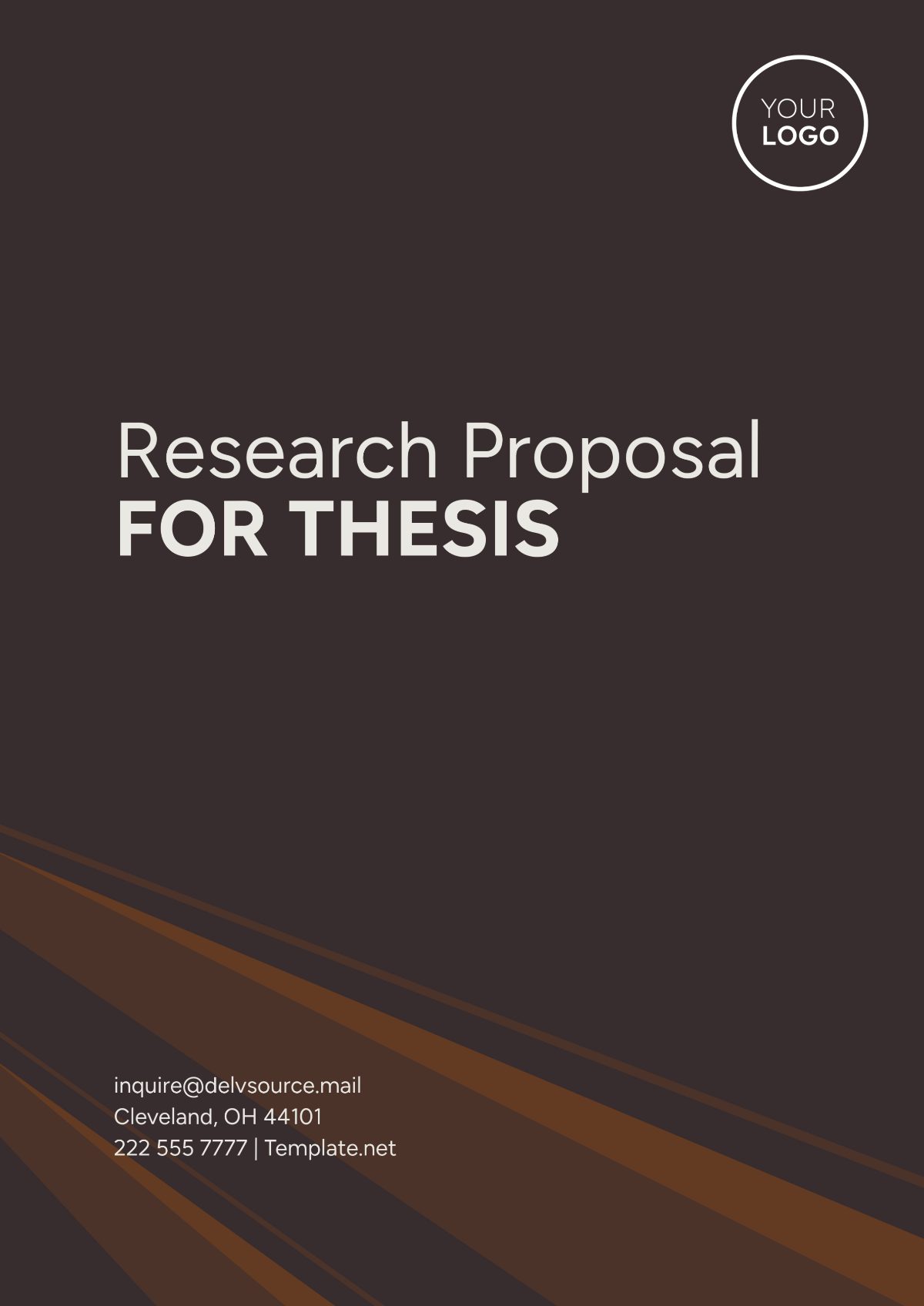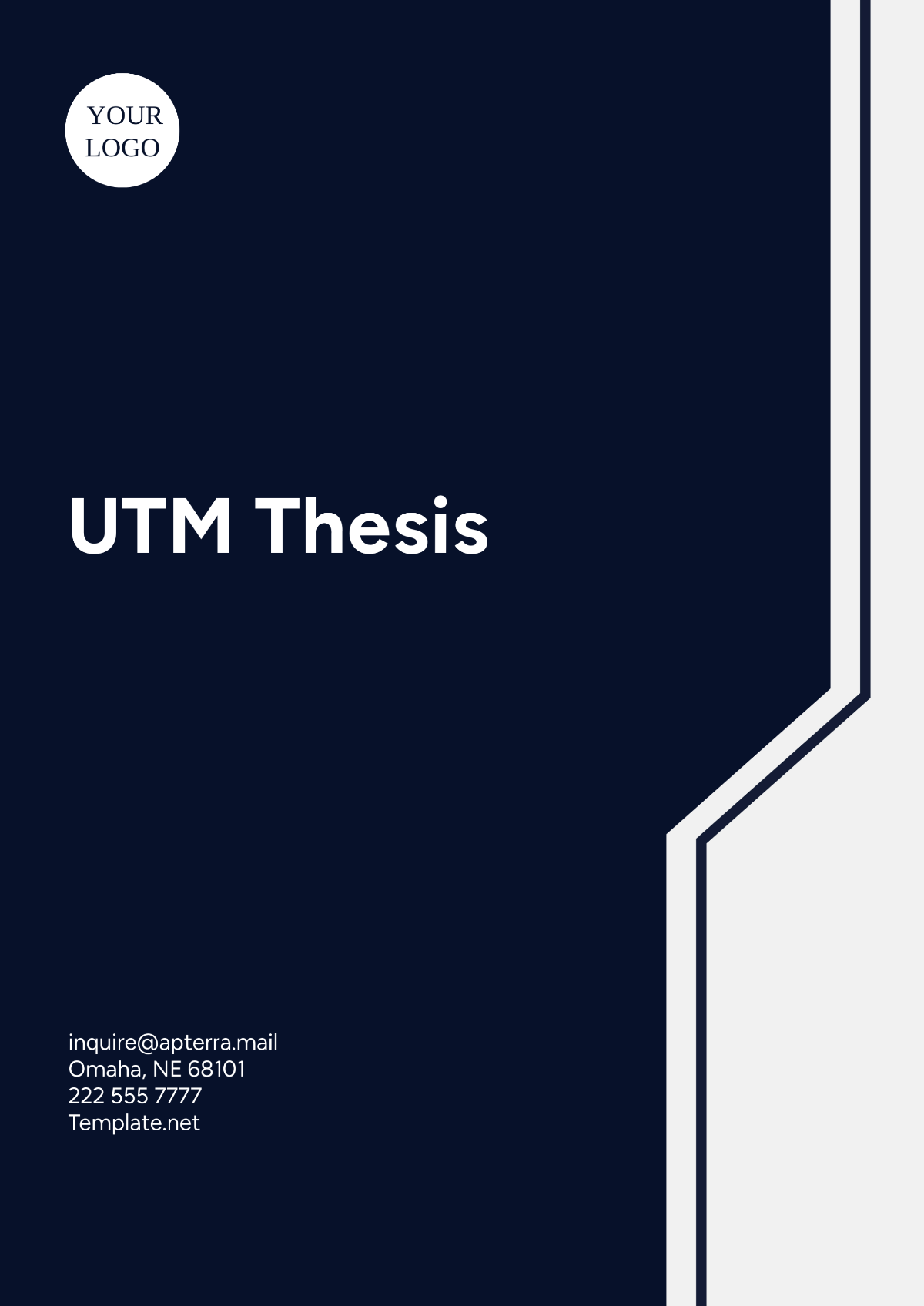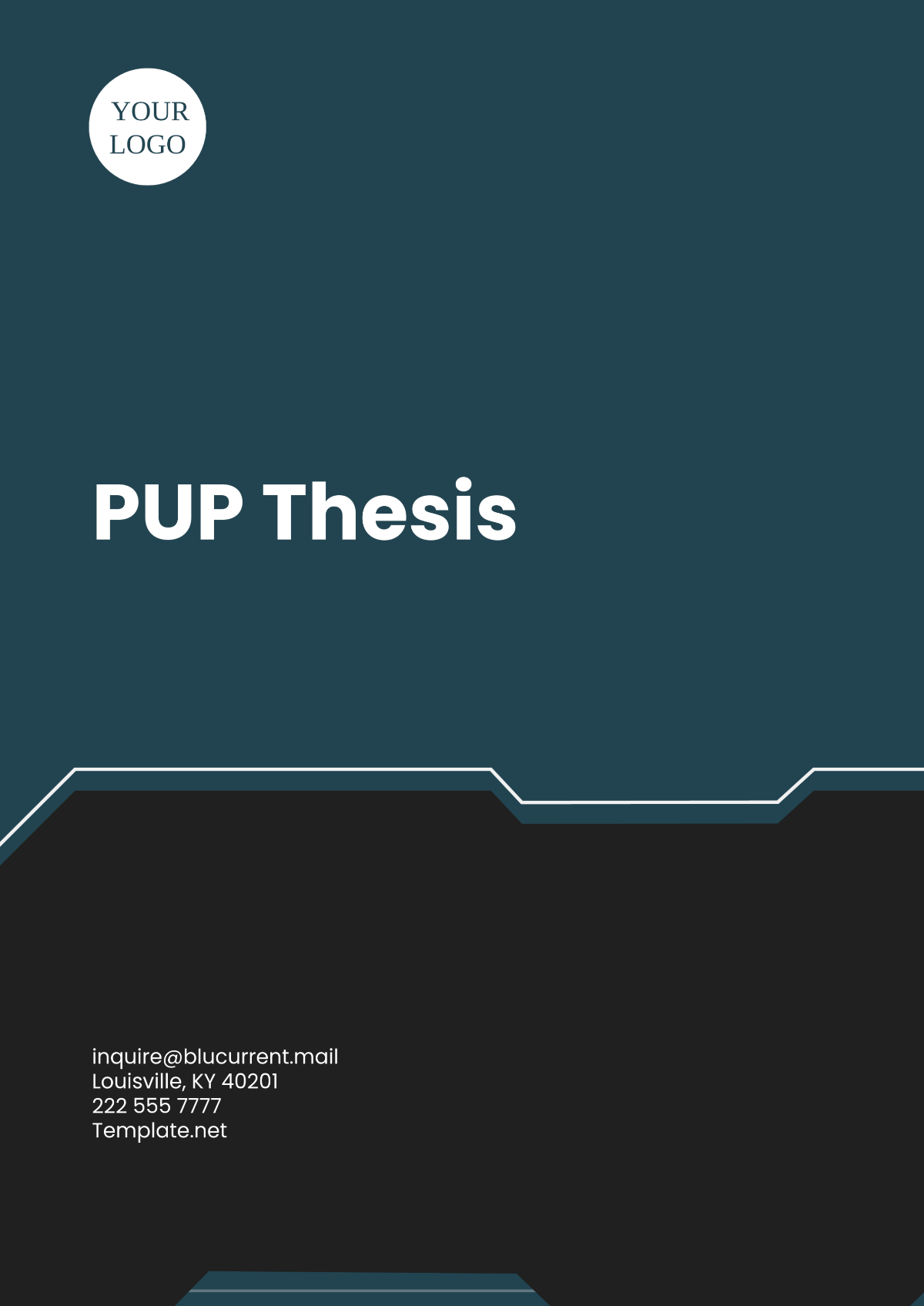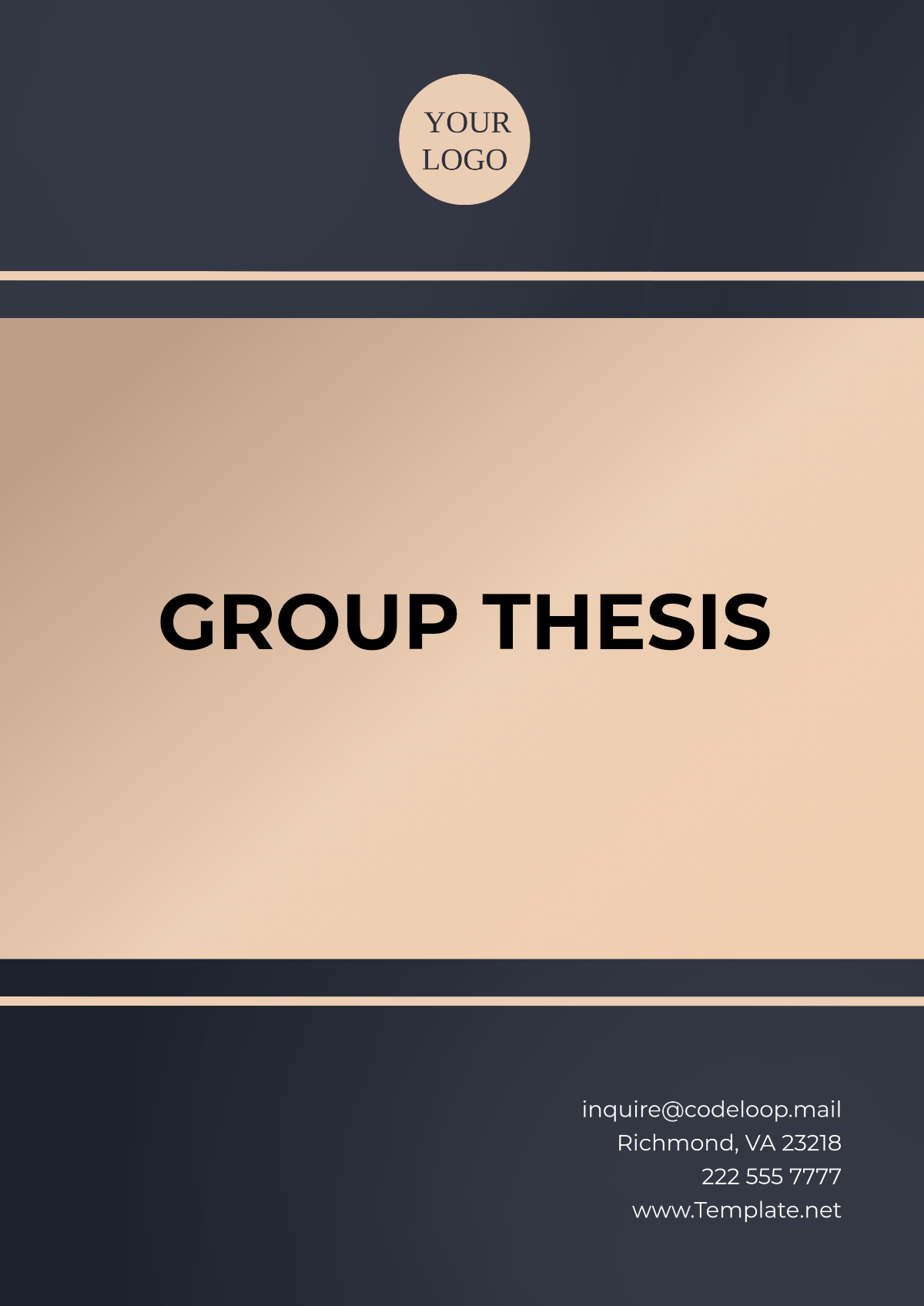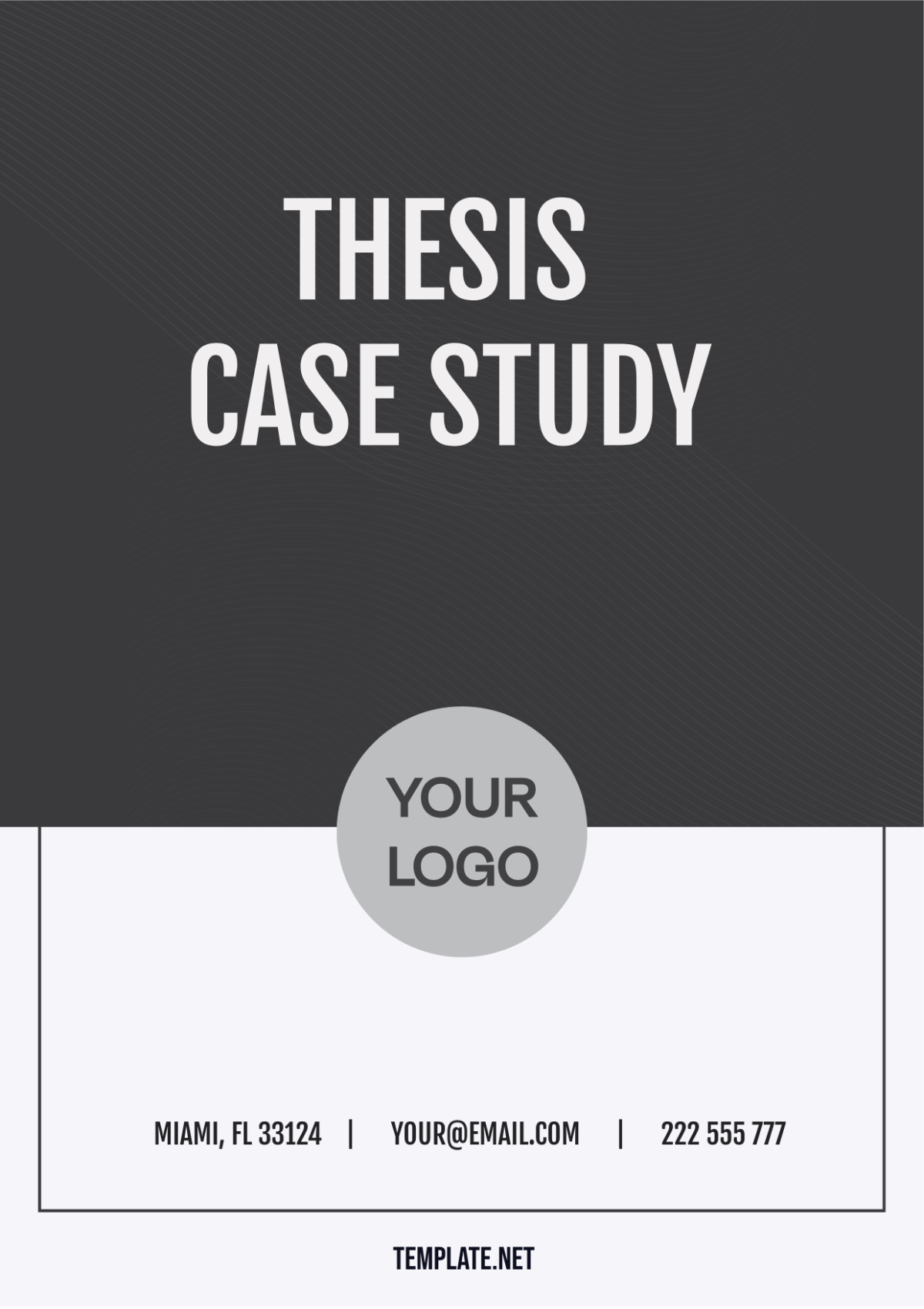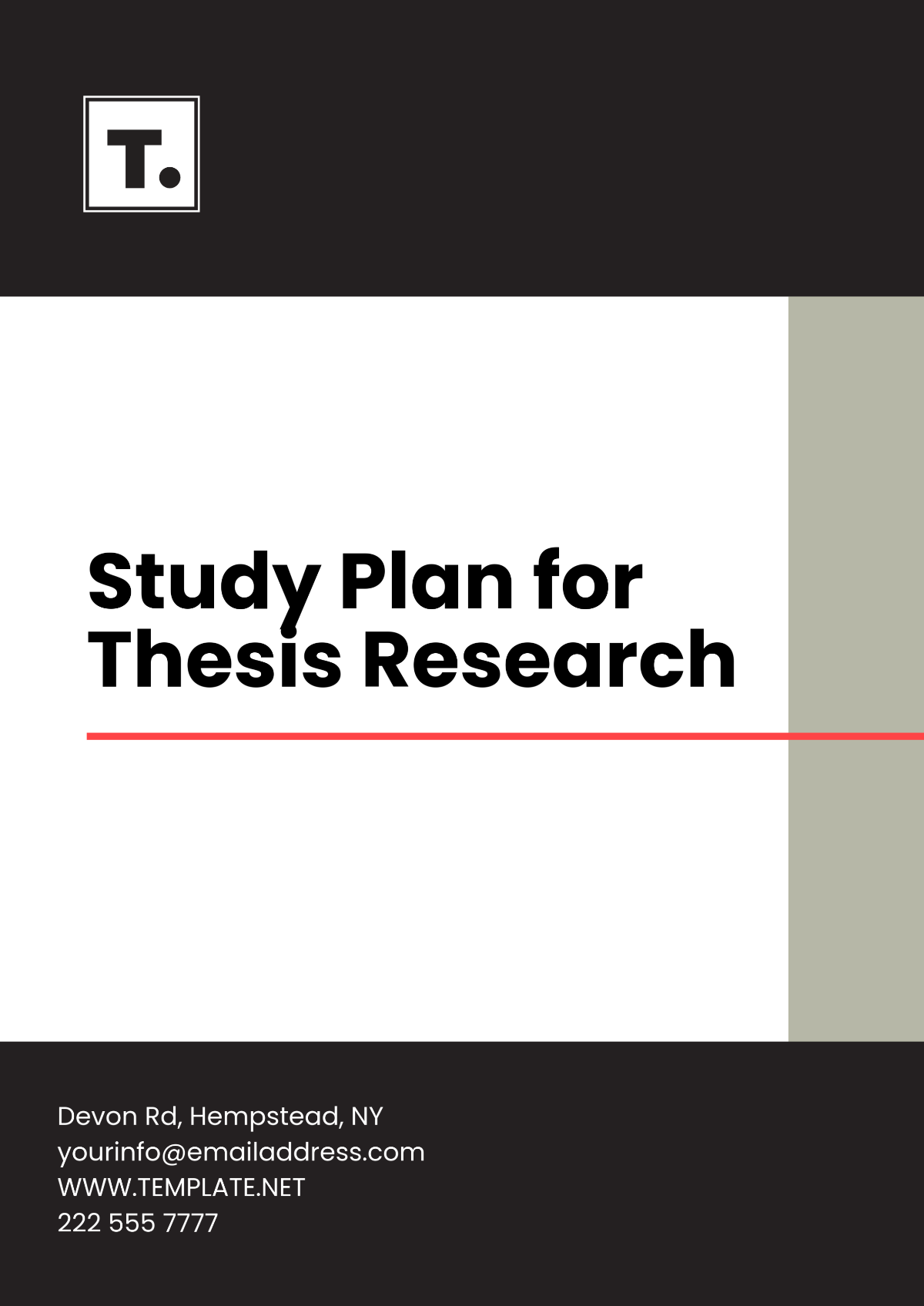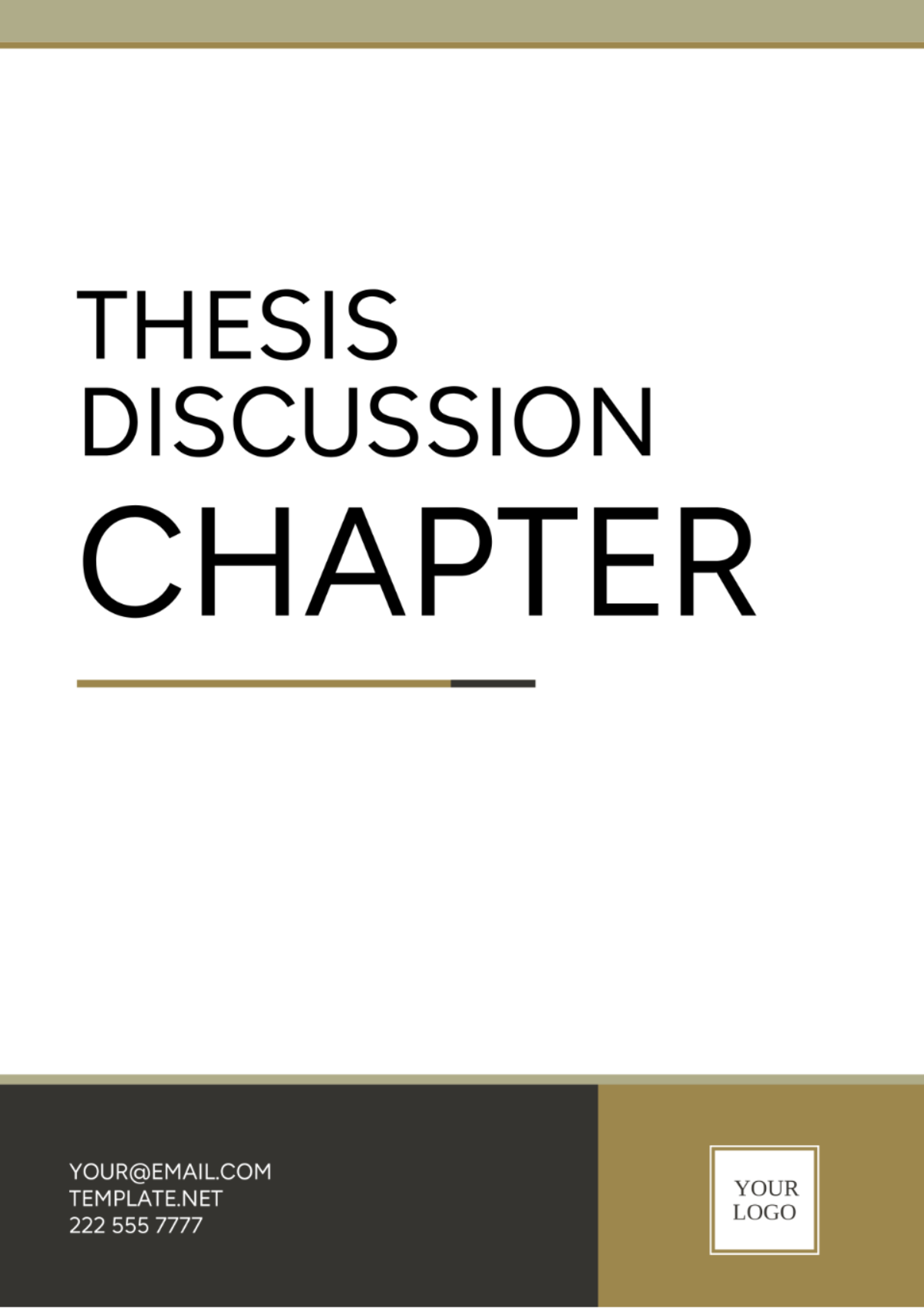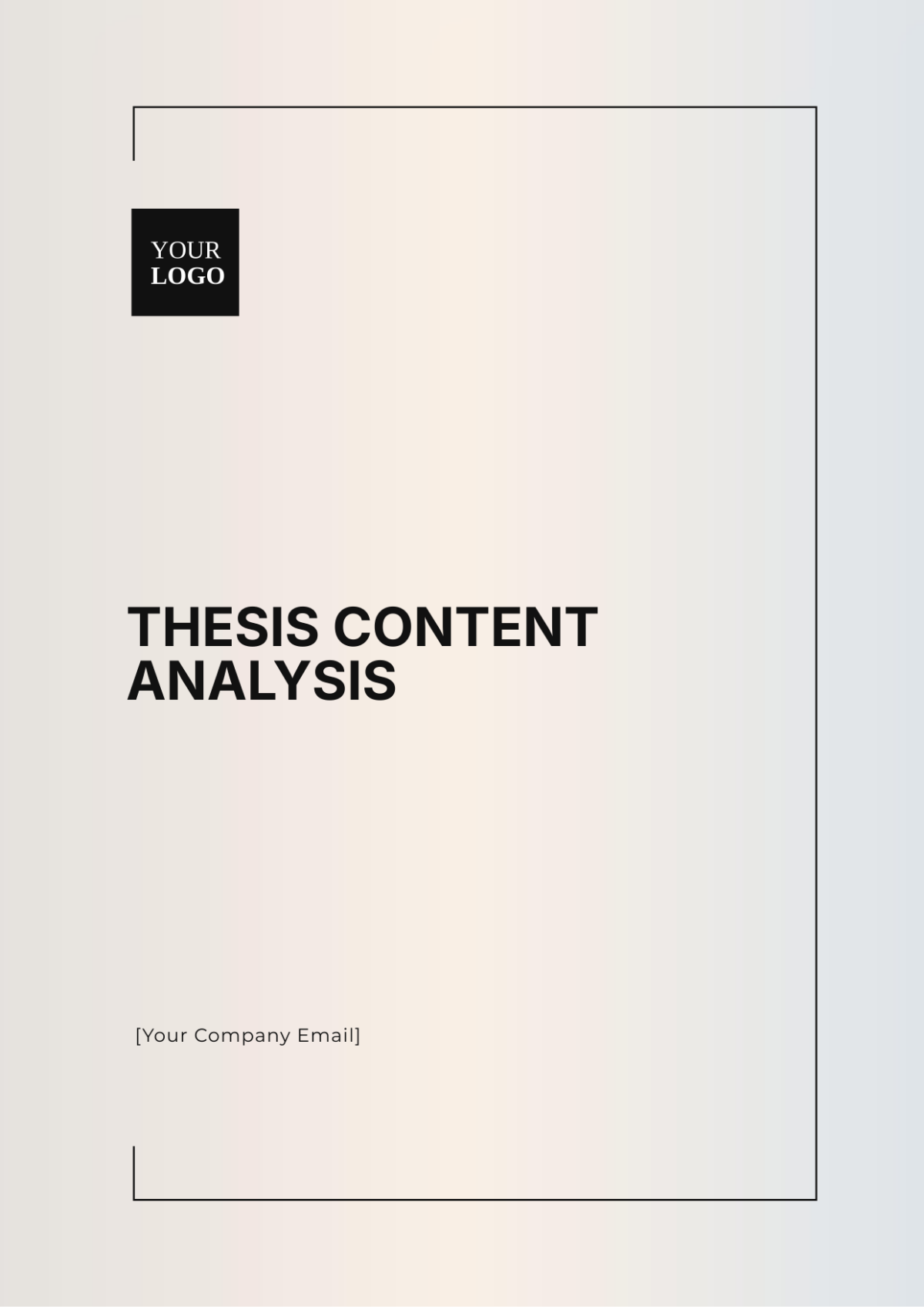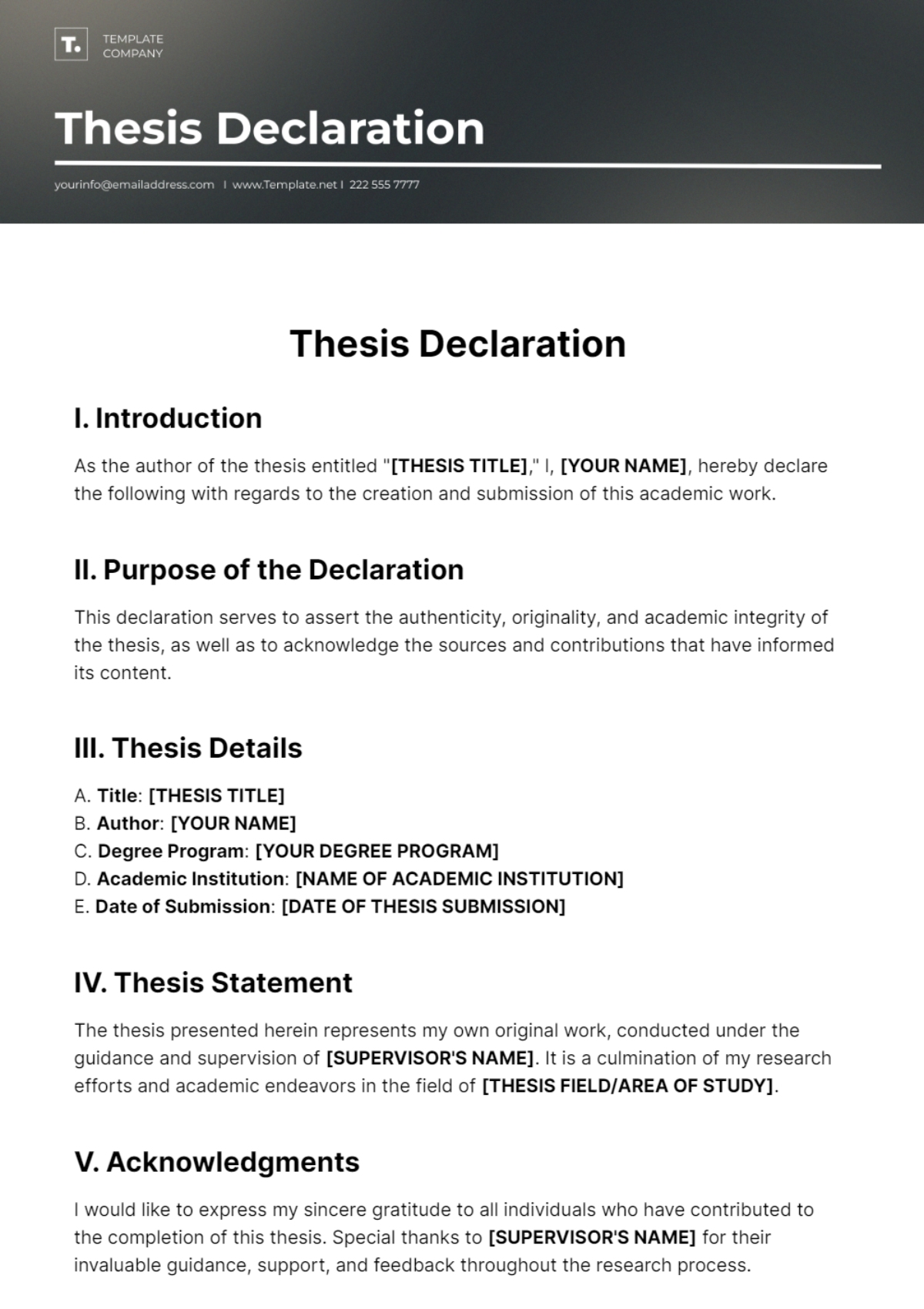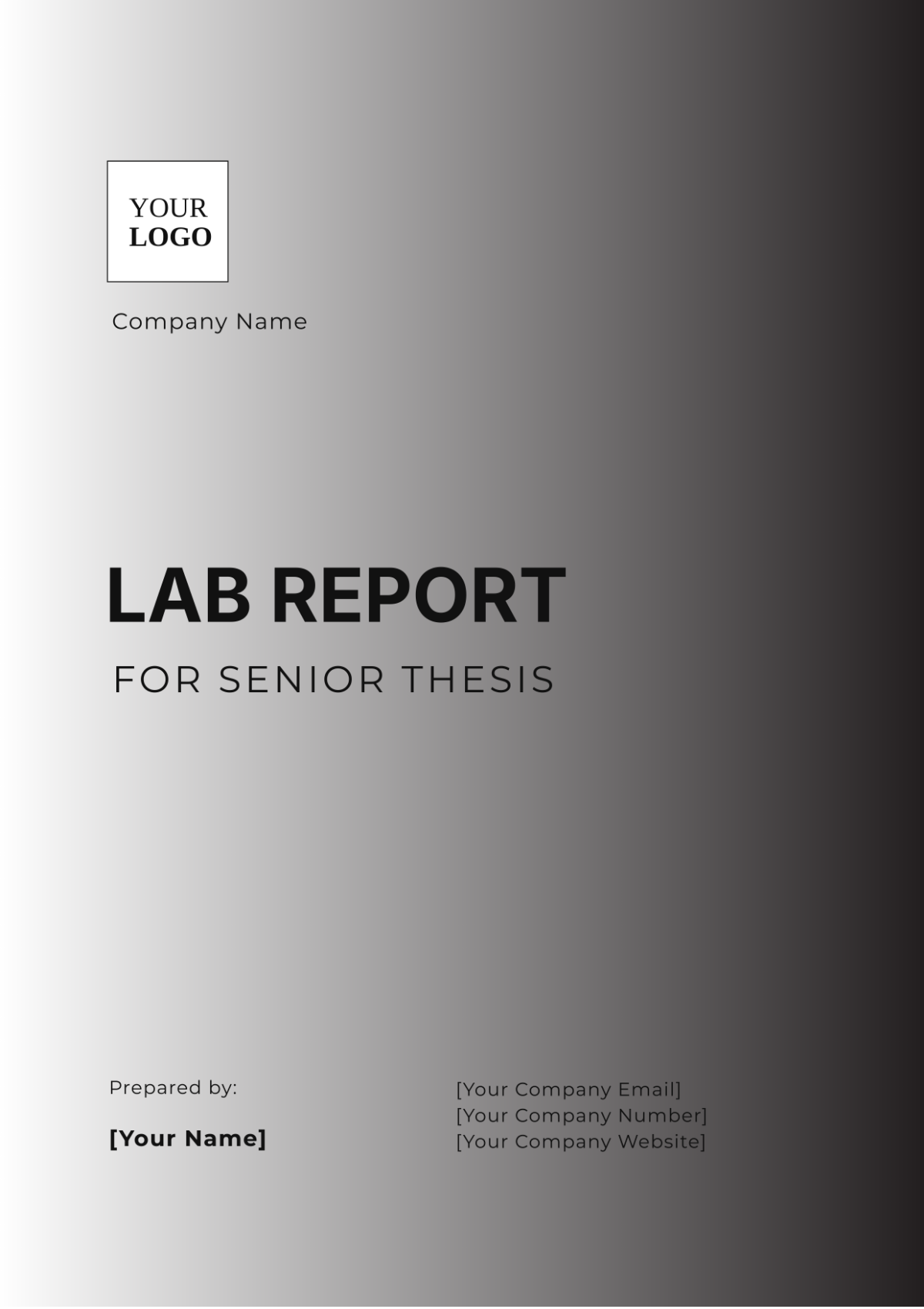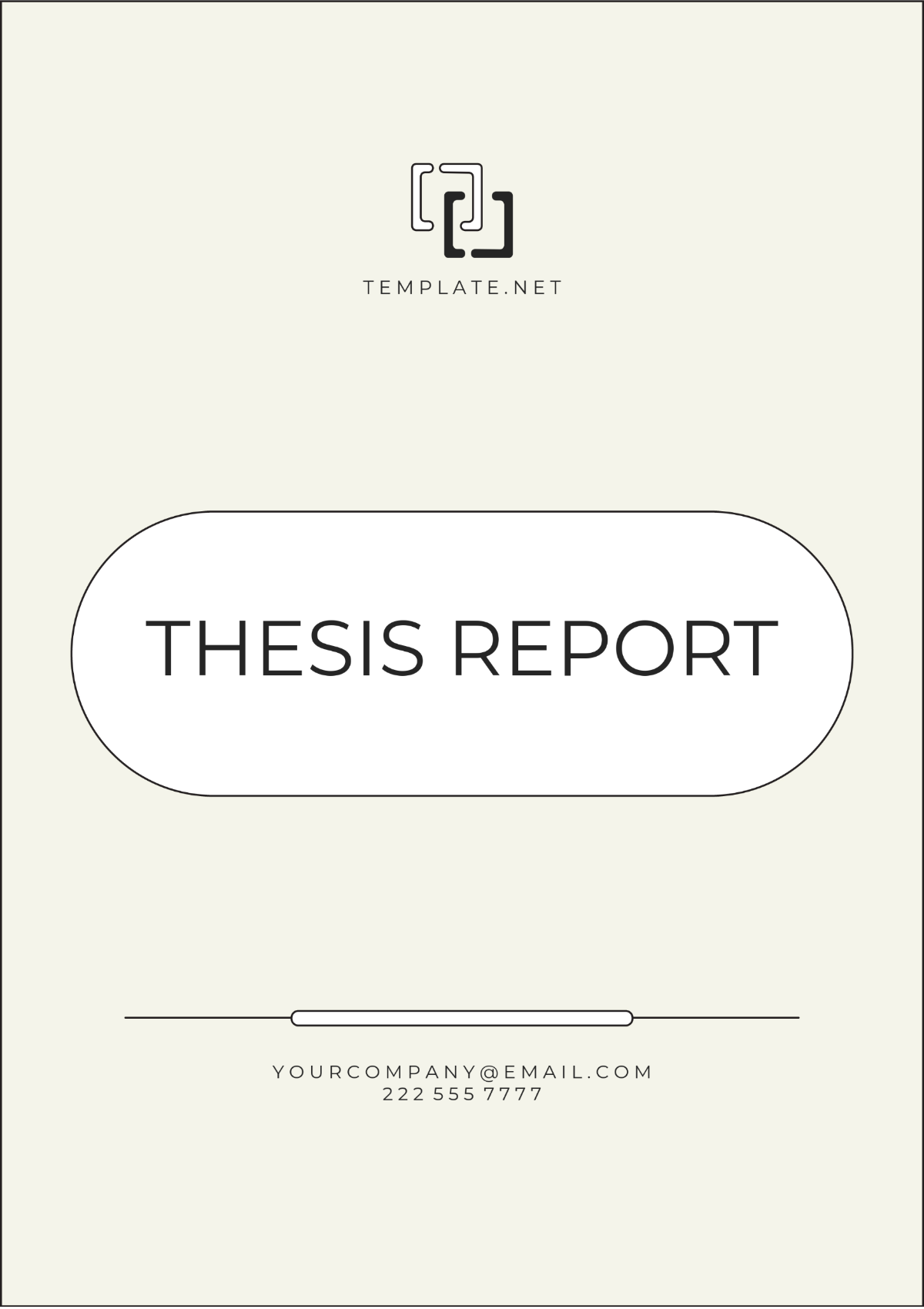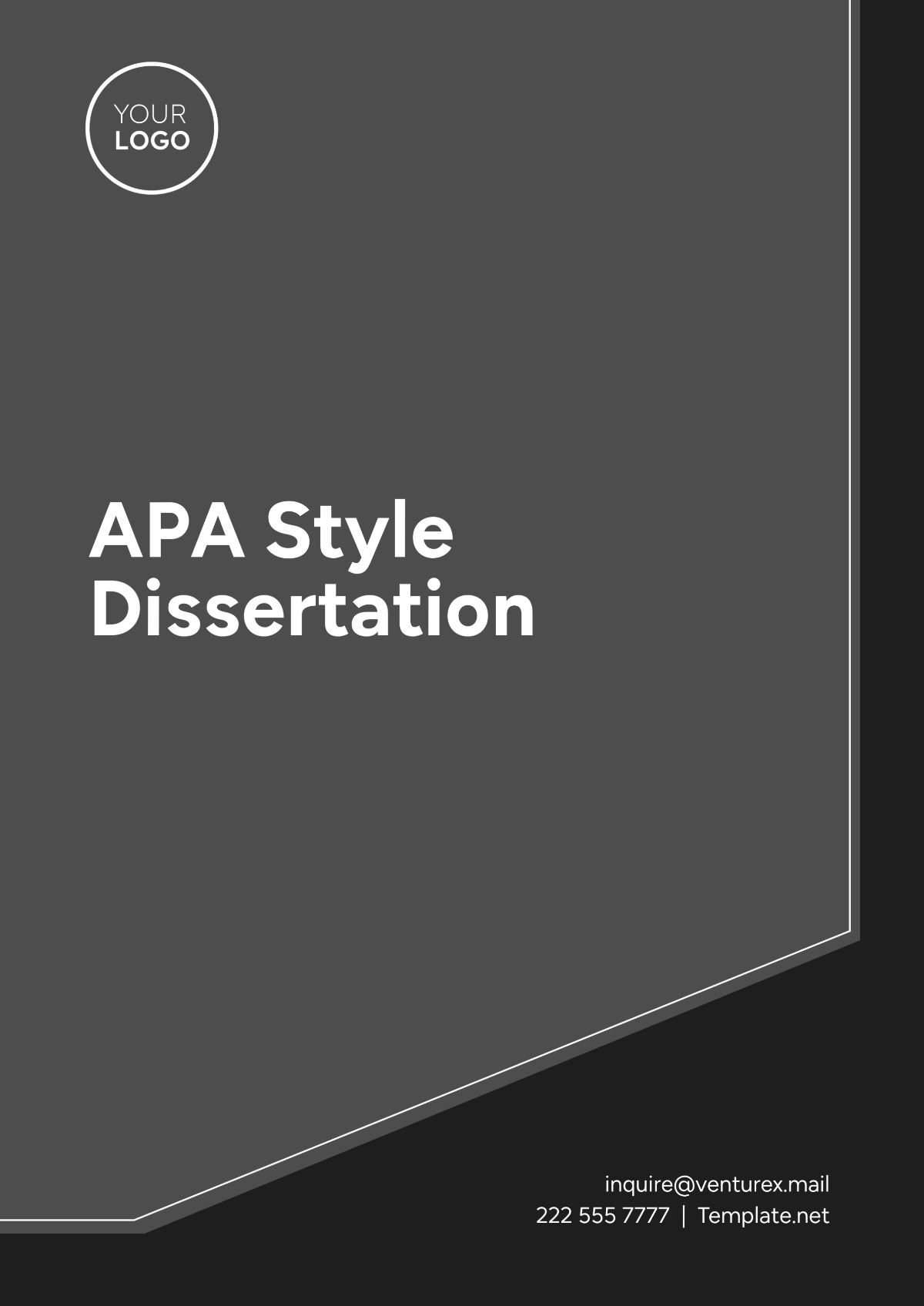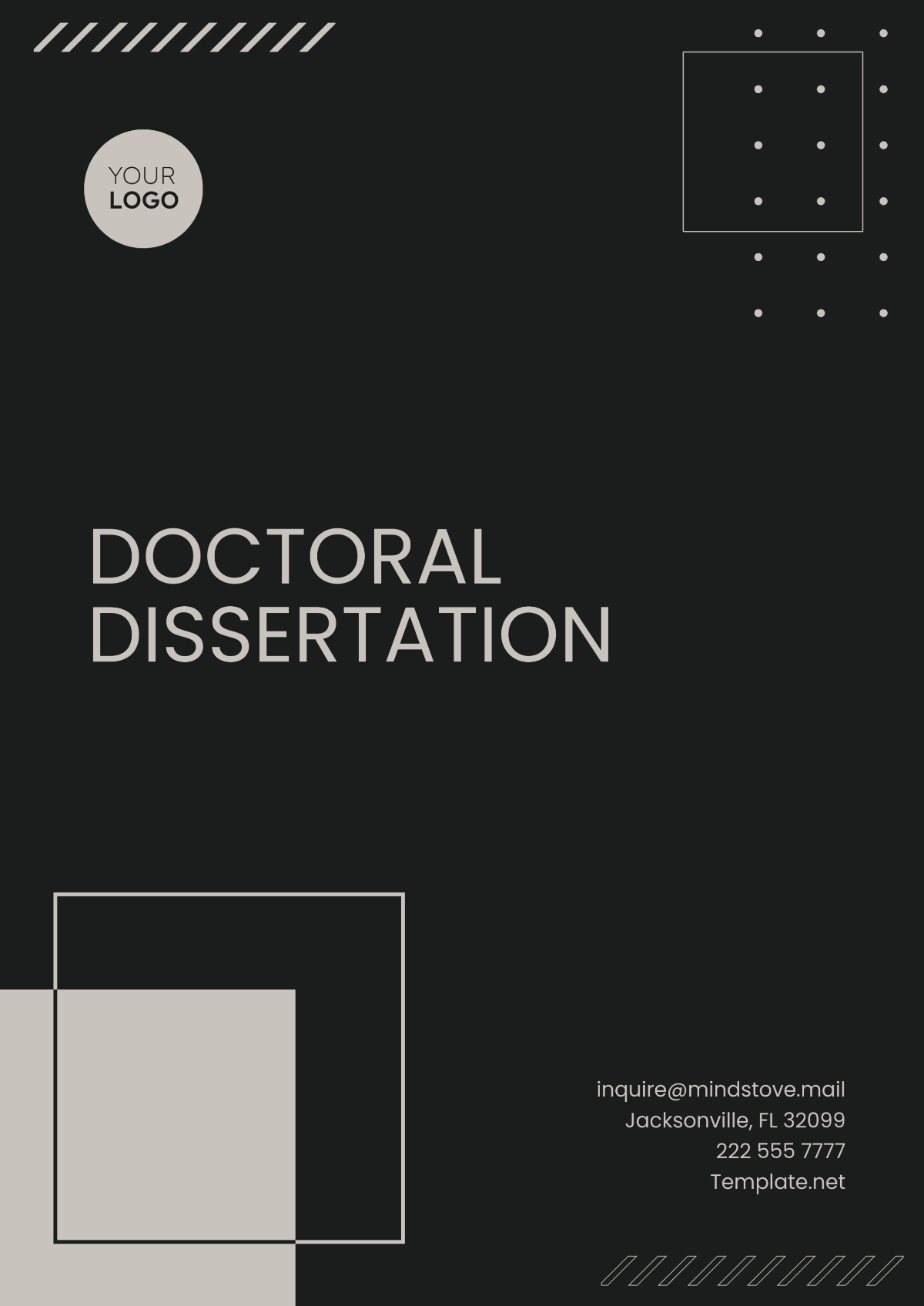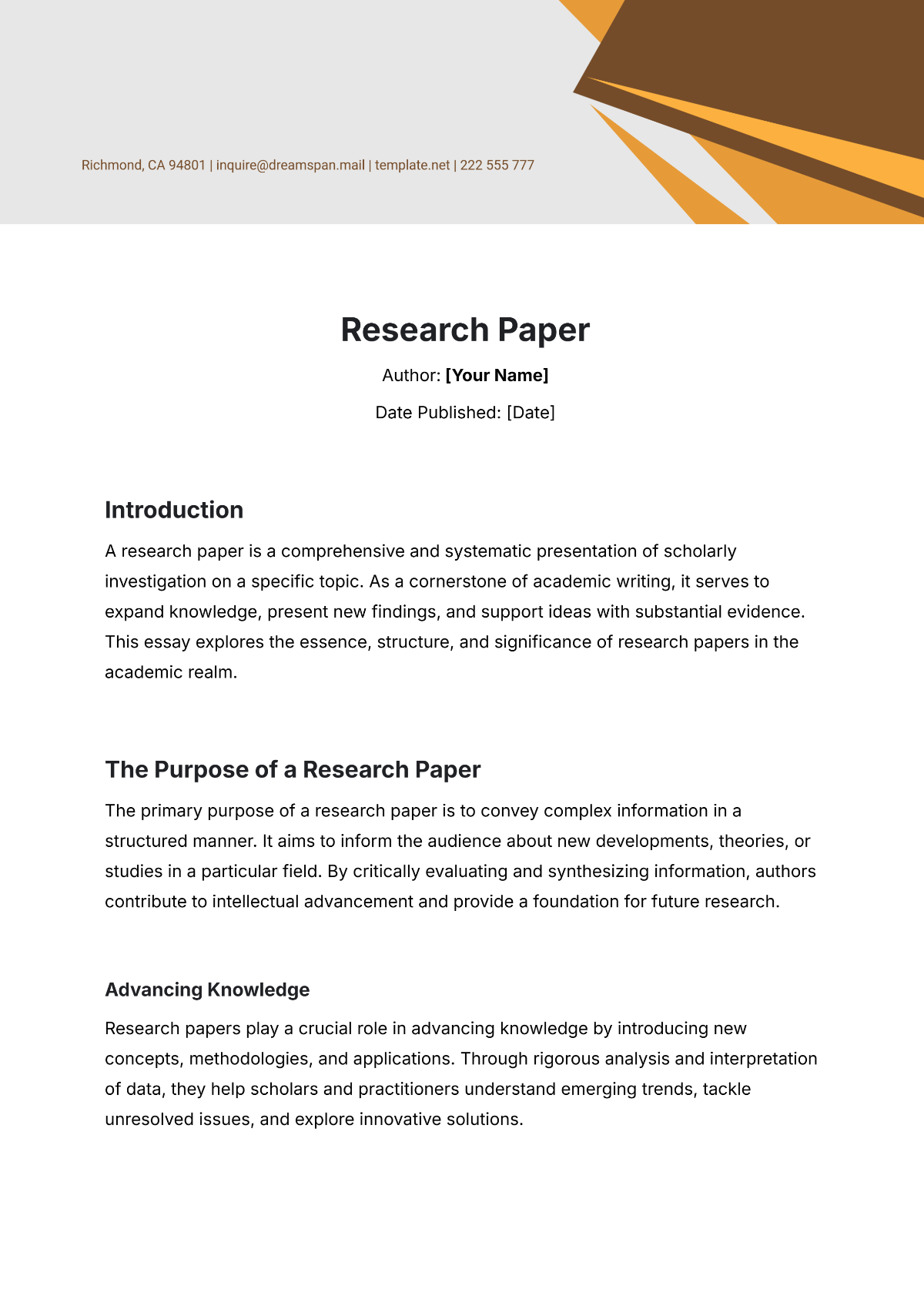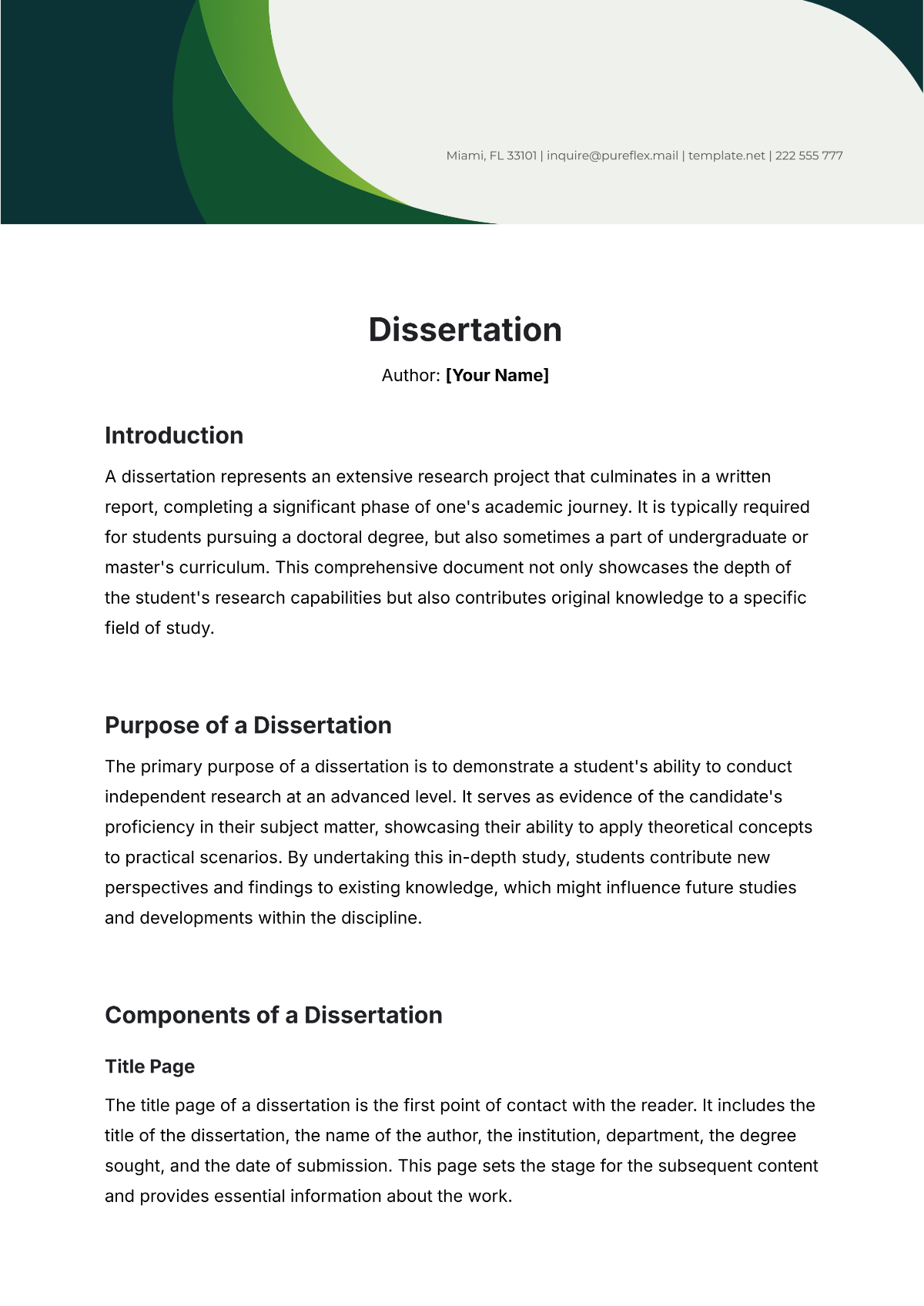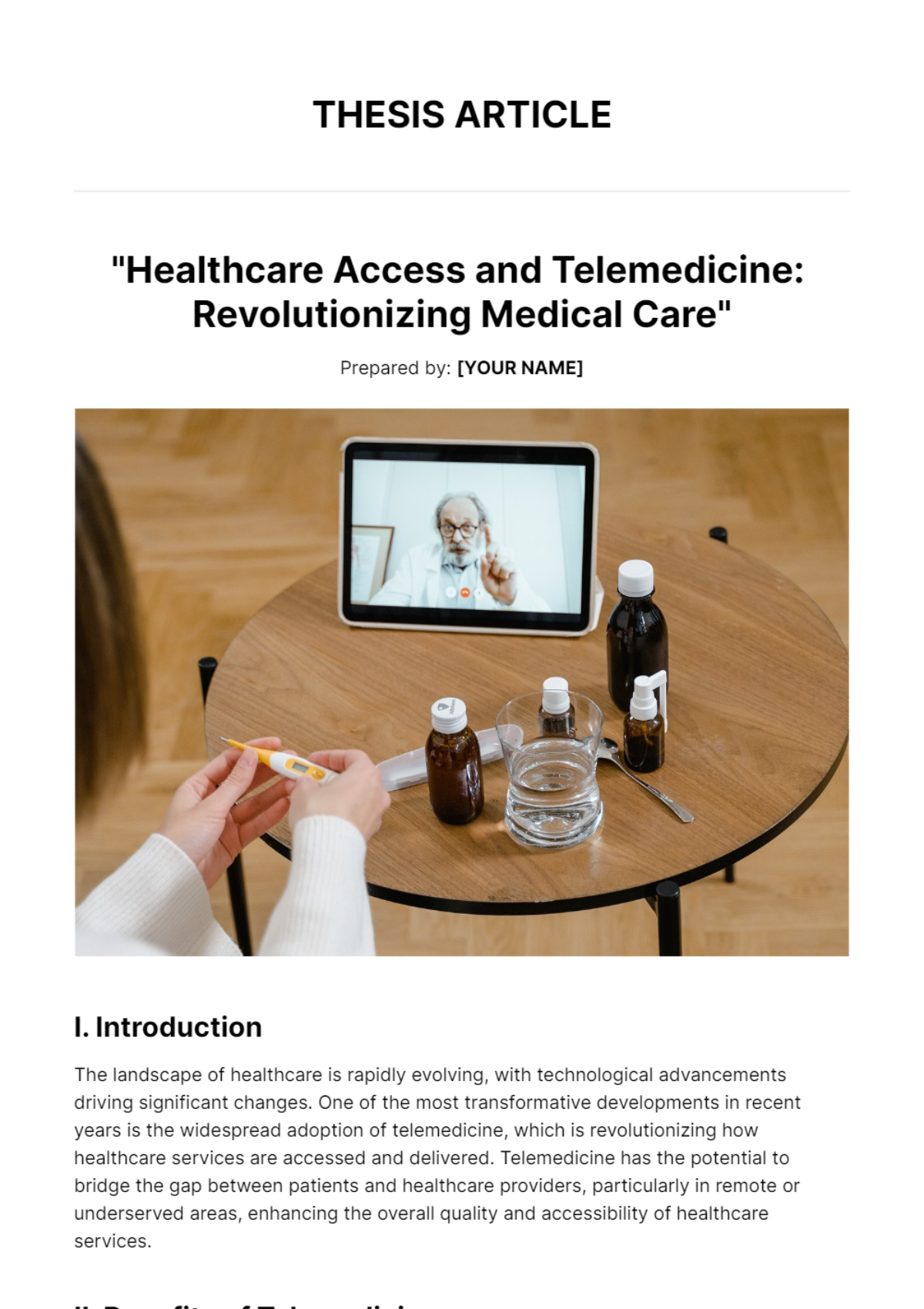Professional Thesis Structure
Prepared by: [YOUR NAME]
Email: [YOUR EMAIL]
I.Introduction
This thesis structure is designed to support researchers and professionals in developing a comprehensive, logical, and methodologically sound document for their academic or professional goals. The placeholders provided ensure flexibility for customization, while the structure itself adheres to professional standards.
II. Title Page
Thesis Title: "The Future of Sustainable Urban Development: A Multi-Disciplinary Approach"
Author: [YOUR NAME]
Submission Date: December 15, 2050
Institution/Organization: [YOUR COMPANY NAME]
III. Abstract
This research explores strategies for sustainable urban development by integrating environmental, economic, and social perspectives. Using a mixed-methods approach, the findings contribute to urban planning practices and policy frameworks.
IV. Literature Review
Focus: Review of the sustainability models in urban planning and their effectiveness globally.
Historical Context: Examining global urbanization trends from 2000 to 2050.
Sustainability in Urban Development: Theoretical frameworks and practical applications.
Case Studies: Comparative analysis of successful urban models in Europe, Asia, and North America.
V. Methodology
Research Design: Mixed-methods approach combining quantitative surveys and qualitative interviews.
Participants: Urban planners, policymakers, and local community members from metropolitan regions.
Timeline of Research Activities:
Activity | Start Date | End Date | Description | Outcome |
|---|---|---|---|---|
Literature Review | January 10, 2051 | March 20, 2051 | Identifying and analyzing existing studies. | Theoretical Base |
Data Collection | April 1, 2051 | August 15, 2051 | Conducting interviews and distributing surveys. | Primary Data |
Data Analysis | September 1, 2051 | October 30, 2051 | Statistical and thematic analysis. | Findings Ready |
VI. Results and Discussion
Key Findings:
Cities implementing circular economy principles reduced waste by 40% between 2040–2050.
Public transportation investments correlated with a 25% increase in urban mobility satisfaction.
Discussion:
The results highlight the necessity for integrative policies that consider socio-economic and environmental factors simultaneously.
VII. Conclusion
This thesis underscores the importance of multi-disciplinary approaches in achieving sustainable urban development. It offers actionable insights for policymakers and planners to shape the cities of 2050 and beyond.
